#laura becker
Text

Saltwater Crocodile
Photographer: Laura Becker
GDT Nature Photographer of the Year 2023
#laura becker#photographer#reptile#gdt nature photographer of the year#saltwater crocodile#crocodile#nature
45 notes
·
View notes
Text




“Sehnsüchte, Prozessstufe II” by Linda Weiß
Part of the exhibition “etwa faustgroß”
Villa Merkel, November 11–27, 2022
Weiß’s work asks if it is possible to think productively, to create with sugar cycles of ecological systems that are yet still dependent on the massive global sugar industry and all of its attendant historical baggage. The show is in part about the aesthetic, ecological, social, and political possibilities of largely DIY processes like fermentation, for example. Here used as one that converts sugar into cellular energy, it operates as both metaphor and material biological process, in what Lauren Fournier describes in Fermenting Feminism as a “symbiosis between species and coevolution, accessibility and bioavailability, conservation and transformation, future and survival… and finally to the reduction of damage and care.” According to Fournier, fermentation can be understood as a feminist or queer practice; fermenting methods in life and in art draw attention to ecological relations as well as ways of caring for other kin, to the vast variation of the temporalities of life, and to humanity’s bacterial ancestors.
Weiß’s work stages a digestive aesthetics that pushes us to think about the possibly queer politics of digestion (as Ramzi Fawaz explores elsewhere) through the specific ways in which sugar moves and transforms in different systems and for different functions. Drawing on contemporary theoretical works on feminist theory, plants and weird fungal life, and speculative fictions, Weiß’s focus on certain biological conversions of sugar not only points toward possible clean energy alternatives (we’re not there yet, the work acknowledges this with its dependence on a small lithium battery for power) but also requires that visitors acknowledge their own co-dependencies and how those substances are produced and circulated.
Sehnsüchte: in English, longings, but it’s a word known for its impossibility to translate exactly. With etymological origins in the words for yearning (das Sehnen) and addiction (die Sucht) the title of Weiß’s show asks us to dwell in the sticky space between both. Sugar seduces, yes, but is nonhuman nourishment here as well, a substance that crosses the species divide or blurs it, a link between complex biological organisms in symbiotic relation.
Text by Alison Sperling
Alison Sperling is an IPODI Postdoctoral Fellow at the Technische Universität Berlin where she works on queer and feminist theory, science fiction, and the Anthropocene.
#alison sperling#jochen wagner#linda weiß#abkstuttgart#lisagranada#javierklausgastelum#patricia paryz#villa merkel#stuttgart#esslingen#anette c. halm#jaewon park#laura becker
2 notes
·
View notes
Text






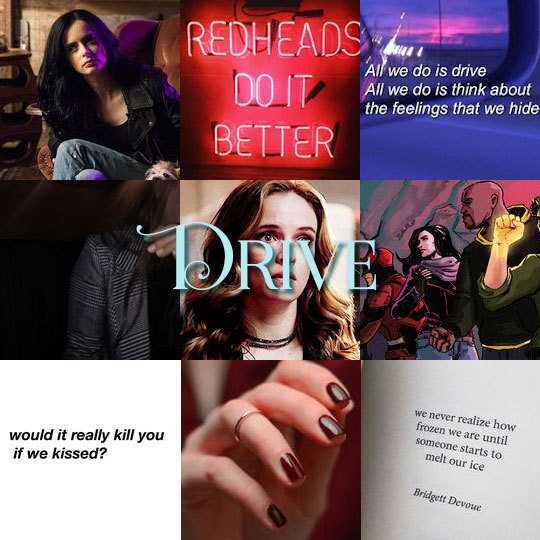
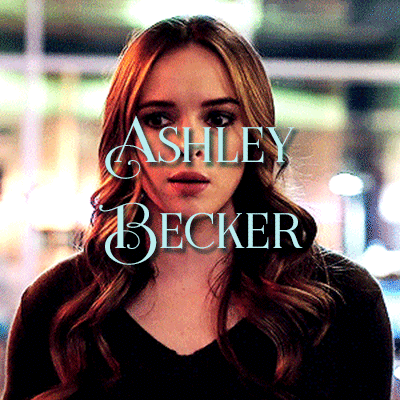
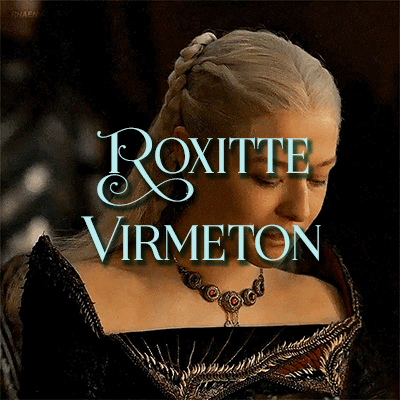











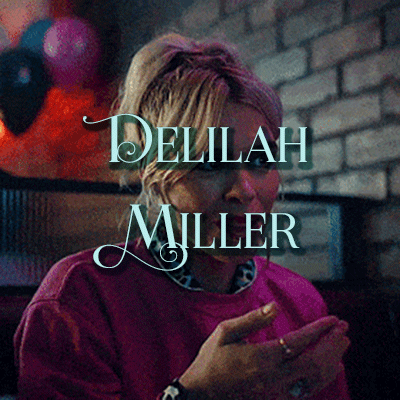

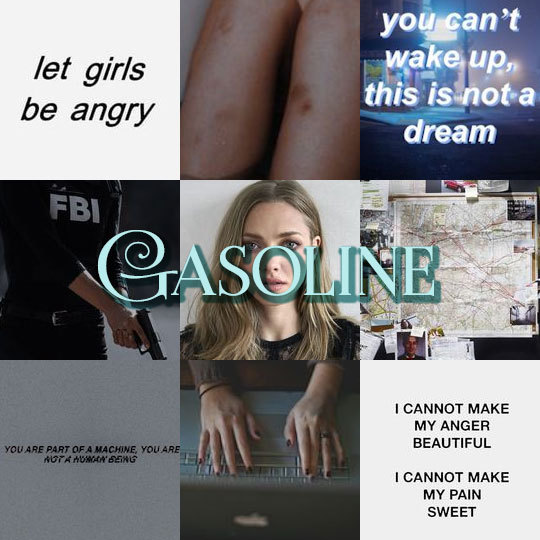

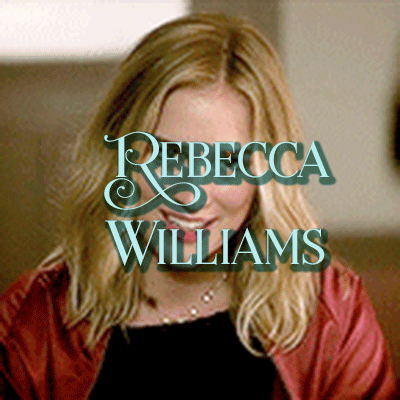


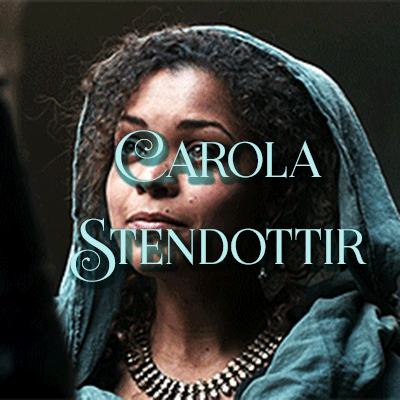


OC PRIDE MONTH CHALLENGE 2023. week three: LGBTQIA+ artists. day twenty-one - june 21st.
My LGBTQIA+ OCS + Halsey's 'Badlands' Album. Halsey identifies as bisexual and uses she/they pronouns!
'And there's an old man sitting on a throne
That's saying that I probably shouldn't be so mean'
Unfortunately guys there is only so many weeks in a month, and therefore we’ve dropped AU week (although look out for a special edition of it in the valentines challenge of this year), but we are keeping our favourite LGBTQIA+ artists around! You know the drill, promote your favs with an edit/drabble to one of their songs or poems!
taglist: @witchofinterest @veetlegeuse @arrthurpendragon @sentineljedi @stanshollaand @foxesandmagic @edshopper @eddiemunscns @carmens-garden @dancingsunflowers-ocs @raith-way @ginevrastilinski @wordspin-shares @oneirataxia-girl @cecexwrites @bravelittleflower
Send an ask/message if you wish to be added or removed!
#opc2023#ocappreciation#allaboutocs#ocapp#ochub#isabella jones: the batman#carola stendottir: mcu oc#my edits#oc: amelia rowe#oc: gabrielle gothel#oc: isabella wayne#oc: Laura king#oc: eleanor rogers#oc: Ashley Becker#oc: nicole zhu#oc: Rebecca Williams#oc: Delilah Miller#oc: Arabella Beast#oc: Hazel Conner#oc: Roxitte Virmeton#oc: Clara Web
17 notes
·
View notes
Text
Pete Doherty in Deutschland: Ehemaliger Skandalrocker präsentiert neues Erscheinungsbild
Früher sah Pete Doherty (44) auf Fotos aus, als sei er gerade erst aufgestanden. Nicht selten musste man sich um den Ex-Freund von Kate Moss (49) sorgen – doch diese Zeiten scheinen endgültig vorbei zu sein. Der frischgebackene Vater hat einen Lebenswandel vollzogen.
Pete Doherty präsentiert seine Kunstwerke in Düsseldorf
Sein stylischer Auftritt im Vorfeld der Ausstellung “Beyond Fame. Die Kunst…

View On WordPress
#Anton Hofreiter#Bryan Adams#Harald Glööckler#Kate Moss#Laura Tonke#Meret Becker#Samy Deluxe#Schiebermütze#Tim Bendzko
0 notes
Text

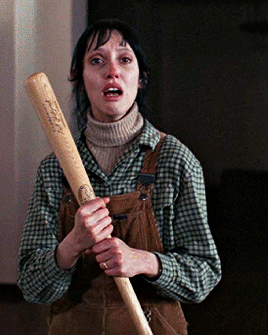



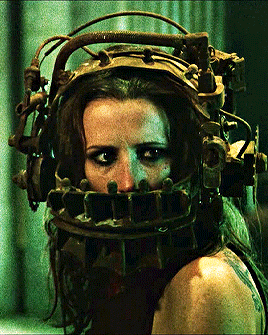

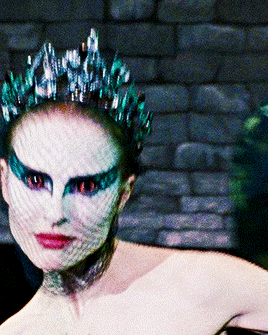
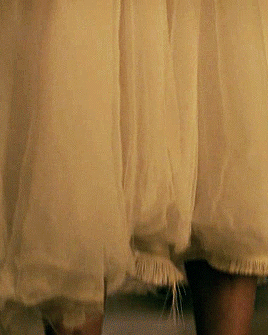

Carrie White – Carrie (1974)
Wendy Torrance – The Shining (1980)
Anna – Possession (1981)
Laura Palmer – Twin Peaks (1990)
Casey Becker – Scream (1996)
Amanda Young – Saw (2004)
Jennifer Check – Jennifer's Body (2009)
Nina Sayers – Black Swan (2010)
Grace Le Domas – Ready or Not (2019)
Pearl – Pearl (2022)
BEST HORROR MOVIE COSTUMES FOR HALLOWEEN
#horroredit#horrorgifs#cinemapix#cinematv#filmedit#mediagifs#fyeahmovies#moviegifs#edits#userrobin#glamoroussource#tusertha#userfrodosam#usermandie#usermorgan#tusermary#nessa007#userbbelcher#useralessia#useraphael
3K notes
·
View notes
Photo

Web Celebs
Minecraft streamers, Dropout stars, and D&D enthusiasts, all in one neat and tidy list.
Grian
GoodTimesWithScar
Hatsune Miku
Ryan Bergara
Shane Madej
Wilbur Soot
Brennan Lee Mulligan
Jerma
TommyInnit
Philza
Quackity
Solidarity Gaming
Crumb
EthosLab
Technoblade
TangoTek
PearlescentMoon
Ranboo
SmallishBeans
Mumbo Jumbo
Dreamwastaken
Slimecicle
Zombiecleo
BdoubleO100
Inthelittlewood
impulseSV
Tubbo
Smajor1995
Laura Bailey
Docm77
Markiplier
Marisha Ray
GeorgeNotFound
Lou Wilson
Cellbit
Amaury Guichon
BadBoyHalo
Joe Hills
GeminiTay
Skizzleman
Rendog
Maia Arson Crimew
Sam Reich
Ashley Johnson
Matthew Mercer
Jaiden Animations
Foolish Gamers
Aabria Iyengar
Zac Oyama
FalseSymmetry
Siobhan Thompson
Emily Axford
Sam Riegel
Travis Willingham
B. Dylan Hollis
Sapnap
LDShadowLady
Alan Becker
Jacksepticeye
Brian Murphy
Taliesin Jaffe
Bigbst4tz2
Jenna Marbles
F1nn5ter
Daniel Howell
El Mariana
Thomas Sanders
Baghera Jones
AmazingPhil
Kagamine Rin
Wayneradiotv
Hbomberguy
Shubble
Tom Cardy
Sneegsnag
Isabella Roland
CrankGameplays
Chris Fleming
Niki Nihachu
TinaKitten
Aimsey
Steven Lim
Karl Jacobs
Eret
Brian David Gilbert
Jschlatt
Misstrixtin
Adrian Bliss
Jack Manifold
Awesamdude
Kagamine Len
SnapCube
Punz
Skweezy Jibbs
Megurine Luka
Aphmau
Julien Solomita
Rhett and Link
Colleen Ballinger
Bigolas Dickolas Wolfwood
This is a newly-combined list! Yay!
3K notes
·
View notes
Note
hi! do you have any youtubes/vlogs you like to watch? especially for interior inspo?
i spend an embarrassing amount of time watching the house & garden uk youtube channel
i have also been watching a lot of paige wassel's videos because i really like her style, but admittedly find her a bit annoying
here are some of my favorite videos:
the unexpected objects that fill a designer’s home
a 300-year-old london townhouse, lovingly looked after
laura jackson walks us through her london home
artist haidee becker paints a picture of the good life at her home studio in north london
107 notes
·
View notes
Text
🔪 | blood means love
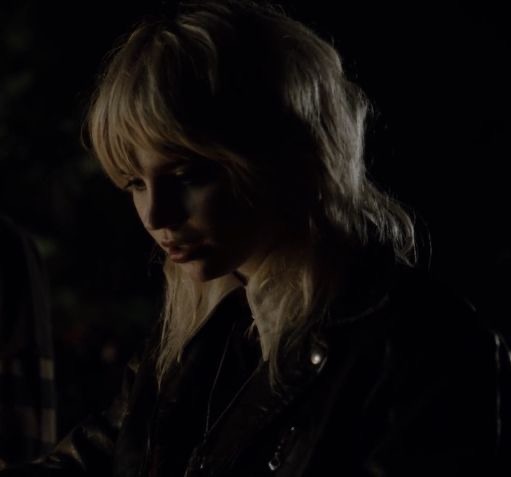
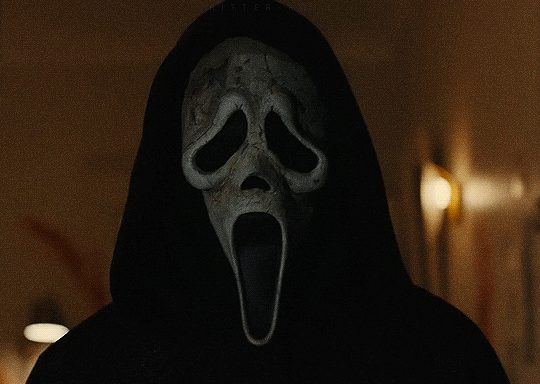

GhostfaceNatalie x F!reader hcs
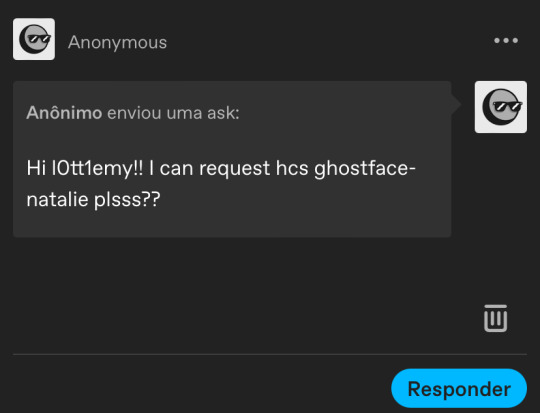
a/n : tysm anon<3 hope you like! nswf and swf, pre-crash, bad writing and small text,
Warnings: desagration kink, knife play, GP/Nogp, death/threat(??

is possessive and out of control when it comes to
you
When you argued with a yellowjacket she knew she couldn't kill her even if she wanted to because the topic was very popular, so she needed to hold back so she wouldn't stick the knife in Shauna's throat.
She forces you to go to her house to watch the entire stab franchise, and she won't take no to be honest.
When she goes to a party she always makes sure to watch you even if you don't notice, are you too drunk to notice that a drunk man is coming to touch your waist? Don't worry, Natalie won't embarrass you, but she will come to you before he does and put her hand on your ass and whisper things like "you look so hot today" or kiss your neck while you're still dancing, and press your body hers against yours for the man to leave
She would never tell you about her plan, because it would be like "I was bored" or for some personal reason that you wouldn't understand, but when you were looking for your cell phone in her drawer and saw her outfit you already knew everything
OBVIOUSLY there is a list with names of people who flirted with you, fought with you or people she doesn't like who she thinks "like" you a lot, every time she kills someone on the list she crosses out their name in red and makes sure the name is impossible to read, you can't know
She can change her mood very easily, if something goes the way she wanted she will be a sweetheart, giving you kisses on the head and being the kindest person on the team, asking thank you and giving sweet smiles even to you, but if some plan doesn't work out, Whatever she wants, she gets easily irritated, scoffs, rolls her eyes and thoughts of killing pass through her mind.
God, you're lucky to have any power over her, when a player from the opposing team "accidentally" pushed you and made you hit your head on the iron fence and your head got a red mark that she felt so angry that she gave a punch that almost broke his nose, you weren't in a position to tell her to stop so it took all the girls on the team to get together to tell her to stop otherwise she would break the player's nose
I thought Shauna liked you and made funny jokes and made fun of her and called her names when she passed in the hallway, then there was one time when they had a fight because of Natalie and they didn't speak to each other for months, making the team lose because they didn't want to give the ball to each other.
On Halloween he dressed up as Ghostface and made you dress up as Casey Becker
Let your thoughts of killing be exposed unintentionally.
Natalie can feel herself blushing when she sees the damn nerd the principal told you to introduce to the school, it could have been anyone chosen to help him, Misty or even Laura Lee, but she chose you, and she could feel her blood boiling when you smiled so openly for him " I could take his head and put it as a lamp in her house" Natalie lets go and automatically regrets it and looks sideways at Taissa and sees her with a provocative smile "ohh Someone call the police... Natalie can do dangerous things guys.." and look at the van to see if she heard
NSWF
loves to take advantage of you when you are drunk because she knows you are defenseless, but who could blame her?..look at the way her little dress is almost transparent, look at how your breasts are so visible, your nipples marking and becoming hard from the cold air, and from the drink, look how accentuated her thighs are and her ass looks so soft to squeeze...it's not her fault
he certainly loves having sex while dressed as ghostface, and makes a point of remembering all the times he killed someone for you, or just for fun
Natalie raises one of her hands to her now bite-marked, red and pert, visibly sensitive breasts and curls two fingers against them while never stopping her fingers in your pussy " God...you're a whore..." natalie murmurs as she goes to your neck and bites the sensitive part " I knew you wanted me to kill that guy... you knew that if I didn't do something you would give yourself up and give your filthy pussy to him, yes?.." her sarcastic and arrogant smile grows and she increases "you are really a fucking bitch..are you going to cum just for that?..." "s-sorry..I'm sorry.." You mumble as you feel a knot forming in your stomach with every second that passes and you try to look at Natalie but you roll your eyes and drooling over things " Sorry what?..." natalie hums heavily and brings one hand to her swollen clit that begs for attention and rubs heavy circles "sorry ghostface..let me cum...please please...I'm going to cum.." A low laugh dripping with sarcasm leaves Natalie's lips and she slurs " Come for me, yes?..you are mine..just my bitch"
if we are talking about g!pNatalie is even worse, this girl will always show your erection, she is a pervert so whenever you are wearing the shorts of the normal yellowjackets(yellowjacket!reader) uniform she will always notice your ass,
At parties she comes up behind you and sticks her erection through your buttocks and puts her face in your neck, poor you, you just wanted to dance, but it seems like she had other plans for you.. whispering things like "look what you did to me" or "I'm in so much pain, could you help me"
He loves writing her name on your thigh, he loves seeing the blood flowing and when you complain it's even better, there are times when she's in a good mood and sucks your clitoris while she does it because she knows the pain lessens
loves to leave as many marks as she wants on you, it can be in visible places and in places that only she can see, She knows that if she bites her shoulder it will show on her uniform and that's why she always does it
she loves superstimulation, he denies his orgasms more than 5 times and when he finally let you cum, she will never take her lips off your poor clit
loves to have sex with a fake knife in your neck, but won't tell you that the knife is fake
#natalie scatorccio x reader#natalie x reader#yellowjackets#yellowjackets x reader#natalie scatorccio smut#Natalie scartoccio
107 notes
·
View notes
Text
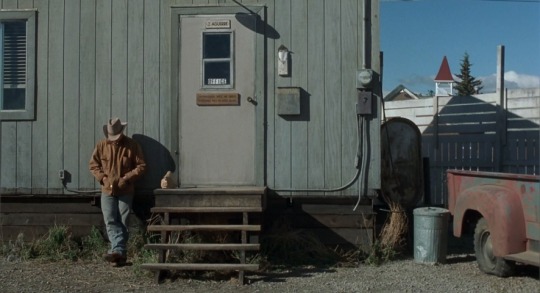
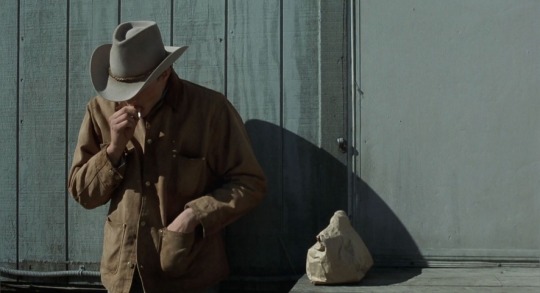
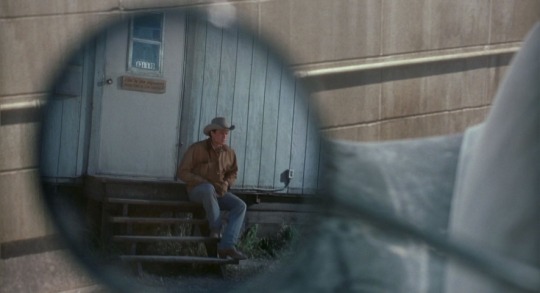
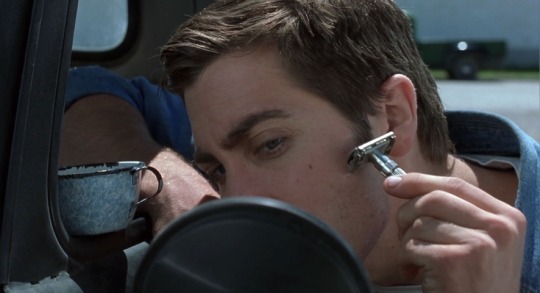

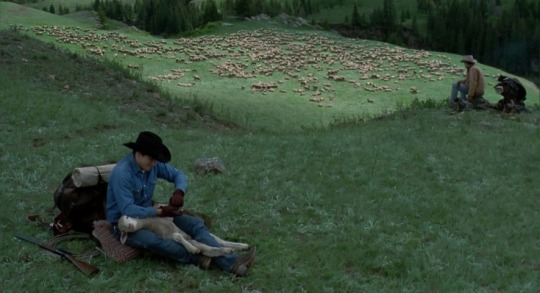
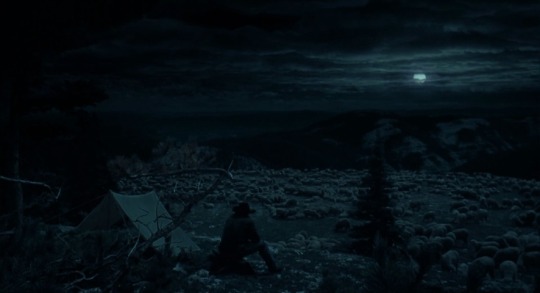








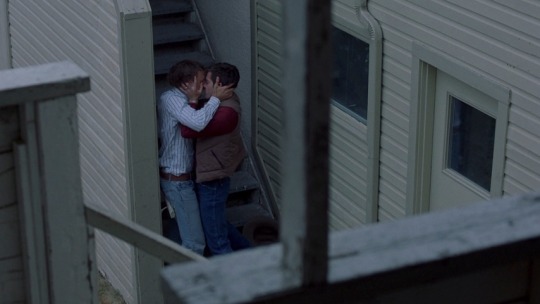
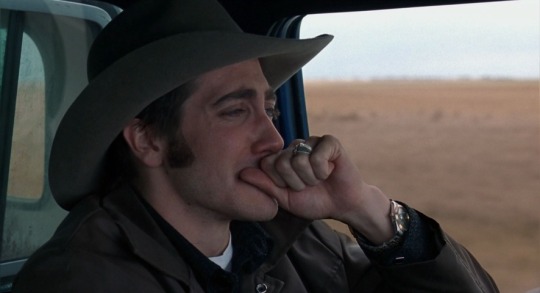
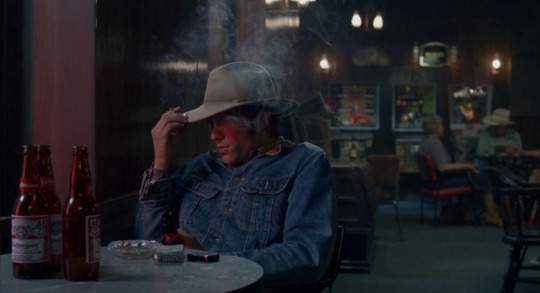
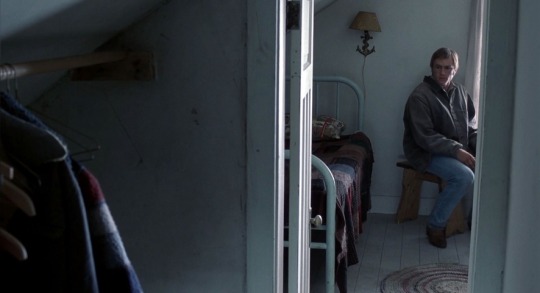

Brokeback Mountain (2005)
Director: Ang Lee
DOP: Rodrigo Prieto
Production Design: Judy Becker
Art Direction: Laura Ballinger, Tracey Baryski
#cinematography#film stills#movie stills#brokeback mountain#ang lee#jake gyllenhaal#heath ledger#more like broke my heart mountain#gay cowboys#movies based on books
195 notes
·
View notes
Text
Authors whose books you have to avoid because they are problematic.
Abigail Hing Wen.
Alex Aster.
Alice Hoffman.
Alice Oseman.
Alison Win Scotch. ‘Terrorism is never acceptable. Not in Israel.’
Allie Sarah.
Amber Kelly.
Amy Harmon.
Annabelle Monaghan.
Anna Akana.
Aurora Parker.
Benjamin Alire Sáenz.
Brandon Sanderson. Islamophobic.
Carissa Broadbent. Said that hamas is doing violence against innocence.
Chloe Walsh. Siding with Israel in the name of humanity.
Christina Lauren. Believe that Israel is the victim. A racist, also Islamophobic.
Colleen Hoover.
Cora Reilly. Travel to Israel despite criticism.
Danielle Bernstein. Islamophobic.
Danielle Lori.
Deke Moulton. Said hamas is terrorist.
Dian Purnomo.
Eliza Chan.
Elle Kennedy.
Elyssa Friedland.
Emily Henry.
Emily Mclntire.
Emily St. J. Mandel. Admiring Israel.
Gabrielle Zevin. Wrote a book about anti-Palestine. Mentioned Israel multiple times without context on his book.
Gregory Carlos. Israeli author. A zionist.
Hannah Whitten.
Hazel Hayes. Reposted a post about October 7th.
Heidi Shertok.
Jamie McGuire.
Jay Shetty. ‘Violence is happening in Israel.’
Jean Meltzer.
Jeffery Archer. Wrote a book with a mc Israel operative (mossad) in a positive and anti terrorist light.
Jennifer Hartman. Liked a post about pro-Israel.
Jen Calonita.
Jessa Hastings.
Jill Santopolo. Said that Israel has right to exist and fight back.
John Green.
Jojo Moyes.
J. Elle.
J. K. Rowling. Support genocide. Racist. Islamophobic.
Kate Canterbery.
Kate Stewart.
Katherine Howe.
Katherine Locke.
Kristin Hannah. Support Israel. Shared a donation link.
Laini Taylor.
Laura Thalassa. Islamophobic.
Lauren Wise. Cussed that Palestinian supporters would be raped in front of children.
Lea Geller. Thanked people who supports Israel.
Leigh Stein.
Lilian Harris. A racist. Blocking people who educates about colonialism in Palestine and call them disgusting.
Lisa Barr. A daughter of Holocaust survivor. Support Israel.
Lisa Kennedy Montgomery.
Lisa Steinke.
Liz Fenton.
Lynn Painter. Afraid of getting cancelled as a pro-Palestine and posted a template afterwards.
L. J. Shen. Her husband joins idf (Israel army).
Mariana Zapata.
Marie Lu.
Marissa Meyer.
Melissa de la Cruz.
Michelle Cohen Corasanti.
Michelle Hodkin. Spread false rumors about arab-hamas. Islamophobic.
Mitch Albom. ‘We shouldn't blame Israel for surviving attacks or defending against them.’
Monica Murphy. Siding with Israel.
Naomi Klein.
Navah Wolfe.
Neil Gaiman. Suggested Palestinians unite with Israel and become citizens.
Nicholas Sparks.
Nic Stone. Talked nonsense that children in Palestinian refugee camp are training to be martyrs for Allah because they felt it was their call in life.
Nyla K.
Olivia Wildenstein. Blocking people who disagree with Israel wrongdoing.
Pamela Becker.
Penelope Douglas.
Pierce Brown.
Rachel Lynn Solomon.
Rebecca G. Martinez.
Rebecca Yarros. ‘I despise violence’ her opinion about what's happening in Gaza. Blocking people who calls her a zionist.
Rena Rossner.
Renee Ahdieh.
Rick Riordan.
Rina Kent.
Rivka (noctem.novelle).
Rochelle Weinstein.
Romina Garber. ‘These terrorist attacks do nothing to improve the lives of Palestinians people.’
Roshani Chokshi. Encourage people to donate to Israel.
Samantha Greene Woodruff.
Sarah J. Mass. Her book contained ideology of zionism.
Stephanie Garber. Promoting books by zionist author (Sarah J. Mass)
Skye Warren.
Sonali Dev.
Talia Carner.
Tarryn Fisher. Said ‘there was terrorist attack in Israel.’
Taylor Jenkins Reid. Posted a video about genocide.
Tere Liye. Rumoured to have ghoswriters to write his books and never give credit to them.
Tillie Cole.
Tracy Deon.
Trinity Traveler (Ade Perucha Hutagaol). Rumour to wrote book about handsome Israelis.
T. J. Klune.
Uri Kurlianchik.
Veronica Roth.
Victoria Aveyard. ‘Israel has the right to exist.’ quote from her about the issue.
V. E. Schwab. Shared a donation link and video about Israel.
Yuval Noah. ‘Israel has the right to do anything to defend themselves.’
Zibby Owens.
26 notes
·
View notes
Text
Q&A Panel with seven detransitioners, 2023, transcribed
youtube
The following is a transcript of the first ever Q&A panel discussion with seven detransitioners filmed on Detrans Awareness Day 2023. Seven detransitioners speak publicly and answer questions from the audience at a film screening of the documentary No Way Back: The Realities of Gender Affirming Care.
The panel discusses the medical ethics of the gender affirmation model of care for gender dysphoria, and the untold harm personally endured by detransitioners Chloe Cole, Laura Becker, Luka Hein, Estella Suarez-Hamilton, Brian Wagner, Rachel, and Shape Shifter.
The panel answers questions from concerned parents about the relationship between gender distress, social contagion, trauma, and familial relationships, and panelists give advice about maintaining and repairing relationships with children and loved ones who are experiencing identity issues.
View the panel recording here: https://www.youtube.com/watch?v=LyJGijjI2JU
Transcript after the break.
Panel moderator: How do you guys feel? Had you not seen [the documentary] before? Did it bring up any feelings for you guys?
Estella (female detransitioner): It brought up a lot of feelings for me. I medically detransitioned this past year and I was still maintaining my social transition, clinging on to that, and kind of hearing about the process of other detransitioners and even speaking to some people who are here today, learning how much commonalities we have with this journey. It makes you realize that “oh, well, maybe this is rare, but maybe this is not so rare as they're saying.” Especially when it comes to medical consequences. I can speak for myself with some of the effects that testosterone has had on my body—it's menopause, it's going through menopause at nineteen. And when your body's not ready for that. And there was like a list of that, the incontinence, not being able to hold your bladder, not being able to sleep because of heat flashes that are painful. It's ridiculous, thinking that a teenager should go through that, when they're just at the cusp of adulthood, so it brought up a lot of emotion realizing that I wasn't alone in a lot of that. I know that I had a conversation with Chloe earlier this year about heat flashes and that was the first time that I had spoken to anybody about the itchiness and the uncomfortableness at night and realizing that wasn't just me, you know, and that's what you hear a lot, a lot of people being like “oh, well it's just you, I guess it just didn't work out for you.” It's like, it's not just me, you know, this is something that could happen and it's exhausting. So, yeah.
Panel moderator: Can we just go down the line really quick and introduce, you guys can introduce yourself, so we know who you are and then we'll open it up for questions.
Shape (male detransitioner): Hi, I'm Shape. I'm a male detransitioner, gender non-conforming. You guys may know me from YouTube or Twitter, so this was pretty powerful, also triggering, but powerful.
Rachel (female detransitioner): I'm Rachel. I transitioned when I was like 25, lived as a “man” for like seven years, realized “oh I don't need to do this and I'm running away from other things,” so I went back to living as a woman, more or less, a year ago, and just kind of opened my eyes to kind of like the whole gaslighting of this “trans marketing” like it's you know they—well not to get too far into it, but the whole thing is weaponizing empathy to make people believe that “oh you have to affirm these kids that's the nice thing to do,” but long term, well, I think you guys know.
Brian (male detransitioner): Good afternoon, my name is Brian Wagner. In my early 20s, I had substance use disorders and mental health issues. I transitioned from male to female, I lived my life as a transgender woman for close to 10 years, I detransitioned upon sobering up and getting to see a psychologist that was not an activist. The most powerful part of this documentary for me personally was when it talked about Jung's “Shadow Self,” because I think for a lot of society and especially the trans rights movement, detransition is a reality that they're not ready to see or face or accept quite yet, so thank you.
Estella (female detransitioner): My name is Estella Suarez Hamilton. I gave an introduction already so…
Luka (female detransitioner): My name is Luka Hein and I transitioned as a minor at 16 and de-transitioned around six months ago when I was 20.
Laura (female detransitioner): Hey everyone. My name is Laura Becker. I was in the documentary. My hair was looking a little messed up at the time, I had dyed it too many home dyes, pink—thank you—for a little while it was—so yeah, some of you may know me from Twitter, Funk God artist, and I designed some of the Detrans Awareness hats and shirts that some people might be wearing so that's what you may know me from.
Chloe (female detransitioner): I'm Chloe Cole and I'm somebody who also transitioned as a minor between the ages of 12 to 16. And I've been speaking out about my experience for not much longer than a year now, since I was 17.
Shape: I guess I should tell a little more about my story since everybody has. I transitioned in my early 20s as well, the first time I ever got any kind of mental health help was when I went to Fenway House in Boston and they completely ignored my internalized homophobia, other comorbidities, and affirmed me, like there was no pushback. I got on estrogen pretty easily, but my mental health declined after that, but I attributed it to being in a “wrong body,” so unfortunately I got cleared for the sex assignment surgery. That deteriorated my mental health even further. I have complications after multiple revisions. I have urinary tract infections every month, that's why I was going to the bathroom like a million times. I am unable to have sex, I have osteoporosis, I haven't been able to get any help really from endocrinologists or even surgeons to reverse this. This is all one giant experiment I fell into when I was very vulnerable and not in a good emotional place. I definitely got sold lies and “hardware fixes” for my “software issues” that actually never went away. And my biggest push for transition was internalized homophobia, I just didn't want to be gay, because I was brainwashed from very young age that gay is bad and sinful, so the minute I realized I could escape my homosexuality, I latched onto the idea that I'm a woman, but I realized that none of those transitions solved any of my mental issues, in fact it made it worse, thank you
Panel moderator: Okay, does anybody have a question?
Audience member: Hi. Thank you all for being here, you're all very brave, and I probably follow mostly on Twitter or something. I think like a lot of parents whose kid is in this ideology, fortunately, my daughter so far has not said she wants to medicalize, but I can see just socially things sort of upping, which scares the hell out of me, because she'll be 18 next year, so I'm wondering if you guys had seen this documentary when you were 17 would it influence you [several panelists shake their head no] or is there anything that you would say to somebody at 17 who's in the grip that you like would help them like, you know, for body acceptance or whatever it would be, I would love to hear.
Estella: Yes, if I saw this documentary it would have made a difference. There are some people that are stubborn and very hard-headed and I was one of them, especially when you're 19, you think you know everything. If somebody says “oh you're gonna get menopause,” “oh I don't care,” you know, because you don't know what that means. The more information people get I think from first-hand, it makes a difference. I remember—and I said this prior to when we sat down—I didn't get top surgery. I was on testosterone for over seven years, and I was socially trans before that, and then a little bit after that, but I never went for top surgery. Specifically I can remember I watched a testimony of somebody who was transgender, they were a transman, so they were a female, and explaining that they had done all this surgery, and all this hormones, and everything, and it still—they were feeling like it wasn't resolving anything. And I remember he was this big buff bodybuilding guy and I was thinking “oh he's so beautiful I want to be like that” and he was like “don't do it, it will not fix your dysphoria” and so that gave me enough to just hold back, hold back. When I came to Los Angeles, there was no gatekeeping. I went to a very popular trans clinic down the street from here, and I was new in town. It was my first time going and talking to them, and they had an interview with me and like a car dealership, you get a packet of papers and you're good to go, like they have everything. But because I had seen the testimony, I thought “well let me just give myself some more time to think,” and the more you read about long-term and the more you talk about these surgeries and how they affect you in the end, the more you realize “well this is maybe not the most creative solution and this is probably not the most healthy solution,” so that's—I think it would make a difference, I think that absolutely this this film is a snapshot into history, and a good opportunity for people to get a different perspective. Especially because it's going from a leftist view too, so it's very nice to be able to digest that.
Brian: When I first transitioned, or started to, I specifically remember I saw the testimony of a man named Walter Heyer, he's an elderly man who I believe did in fact have the vaginoplasty and it didn't stop me. Thankfully, I never had that done, but I was well aware of it. But I was in a very delusional and ideological mindset, so I really don't think seeing this would have stopped me, I really don't. But I would have just told my former self to be careful what you wish for and don't rush into anything, because changing your gender it's not like you know, shaving your head, or you know, something like that, it's very difficult to undo and the further you go, the harder and harder…
Rachel: One thing for me, in female social circles, I definitely felt like I got “cool points” for it and I was already in my 20s, and it's got to be ten times that when you're in high school, so I feel like almost anything you would say would just fuel it even more, because it's like “oh this is something you're not allowed to do,” and it's kind of risky, so that's more exciting. And I don't know if this would help, but one of the biggest reasons I detransitioned was because I realized I felt affirmed in my identity as a “man” when I was with my female friend group, but then as you get more and more masculine, they don't see you as a woman anymore, and your brain does literally change, like there is something different with the hormones, so any kind of feelings of belonging she gets like within her current social circle, just basically imagine losing all those female friend groups, because once you look like a man, it doesn't really work the same. So like I don't know, I'm not really even sure how to explain that to a kid, but like “would you do this if you were completely alone by yourself without the affirmation of all your friends?” And she'd probably say “yeah sure I would,” but people tend to socialize in gendered groups, so just imagine if she can't socialize with her current friends, because of the way that they see her as, like, a man, later on. I don’t know how better to describe that.
Chloe: So, I'm 18 now, I'm a legal adult and as many of you know, I travel around the country talking about this subject. And there's still a lot of things that I can't do legally, like I still can't buy marijuana, or nicotine products, or alcohol. I can't rent a car. I can't even rent a hotel room. Because I'm under the age of 21. And yet, at 13, I was allowed to make the decision to change my sex. But I really don't think that 18 is just some magical age where all of a sudden you're capable of, maybe legally doing something, but that doesn't necessarily mean that you really fully understand what you're doing. I mean, the estimate right now is that most people's brain development finishes at around the age of 25, and it's probably much later for a lot of other people. But brain development aside, there's still a lot of things that people at the age of 18, at the age of 25, and even beyond, don't know about the world. When you're young, you don't really have a lot of knowledge or experience having to do with the world, and I was lucky to find out that I wanted to have kids at the age of 16, and to stop transitioning then, but not a lot of women figure that out until much later now.
Luka: I think particularly when you have a child going into this and you're worried about them heading down the path of medicalization, every situation is different, but presenting a different perspective, I feel like, couldn't hurt. They may not listen, because young people tend to be rather stubborn, but it couldn't hurt. And you know your kid doesn't stop being your child when they reach 18. You still need to be there, and let your concerns be known, with care, and compassion, and a genuine concern for their health and well-being. Keeping that line of communication open, to be that safe adult for your child, even when your child is an adult, is something that young adults still need, everyone needs, to a certain extent. And there's gonna be young people who maybe didn't transition and they reach 18, and rush into stuff, but I don't think it's acceptable to give up on them just because they maybe won't listen or they're hard-headed. If anything, that's when you need to be more compassionate and really keep that line of communication open, because they deserve for you to keep trying.
Laura: Yes, so I think that this documentary definitely would have impacted my perceptions, because although I had a lot of magical thinking, was naive, very stubborn, I was also very overwhelmed and we all started to know the kind of common wisdom “kids need structure.” Everyone needs structure, we need to order chaos, because things are very overwhelming. And I was overwhelmed, that's a lot of what passive suicidal ideation is—just being overwhelmed and your brain goes to this solution, this fantasy solution of escape, so it can deal with it at that moment, and transition is very similar, the transition fantasy. So I think I really was hungering to be helped. I was very alone, from peers and family, and I really wanted a safe adult to really sit down with me and listen to everything, and tell me that they knew how to help. Not in a pushy way, or in a controlling way, but in a way that allowed me to feel like myself, and I just never really got that, because my parents, by the point when I was 19, when I transitioned, they were exhausted, and they were not very equipped to deal with it, and there was some abuse as well, to me, psychologically. So they just kind of did emotionally sort of “give up,” and because I was so stubborn, they said “okay.” And the thing is you know, you just kind of get used to people not seemingly really understanding you, you know. Teachers didn't understand, therapists just—low quality, low, shallow, shallow understanding and so they'll say “yeah you're valid” or like “sure you can, are you sure you want to do it? Yeah okay, you know, maybe it'll help, because you're already so f-cked up, you're already so mentally ill anyway,” so they were very desperate too, my parents. But I was suicidal and had unprocessed trauma—PTSD—so, definitely keeping that connection, I know it's very difficult, but still listening and still being there, and not giving up is this inevitable outcome that “this person is just going to be messed up and they're disabled and they're mentally ill and that's their identity” and trying not to see your child as broken, because I saw myself as a broken human being that didn't deserve love or was capable of achieving happiness, so of course you're going to go to desperate measures, like surgical interventions. So I would say this documentary would have really been a relief to me, because it just provided so many calming, intelligent, rational adults that are experts in the field, they know what they're talking about. It just would have relieved my existential anxiety and overwhelm to know that there is an alternative because I thought that there wasn't. I thought it was either “I'm inevitably going to kill myself and I don't want to live anymore as myself,” or “if I transition maybe that'll help I'm doubtful about it, pretty hopeless, maybe it'll help.” I didn't realize until several years too late, I mean too late in a short-term sense, for the surgery and hormones, that there were alternative pathways, and so I have been able to cure my gender dysphoria and treat my suicidal ideation and PTSD, still working on that one, that one takes some time, but yeah, thank you.
Shape: Yeah, this definitely would have helped me. A lot of things did resonate with me, specifically how autistic people think “black and white.” I didn't feel like I could have existed on a spectrum of a gender while being a biological male. Also the way that's like, I really got obsessed with transition when I found out that it was a “possibility,” so it kind of clouded my entire judgment. Also it's the first time I've heard how dysphoria shifts, so you fix kind of like one part of your body and then you get obsessed over another part, and that actually never went away—I'm still obsessing and experiencing body dysmorphia. Yes, it would have definitely helped me, because at the time I didn't know that many trans people, and definitely didn't know anything about detransitioners, I've heard a little bit, but all the stories were like “well those people were never trans on the first place,” you know, the same things they're telling me right now, so it's a very important documentary, it was pretty well balanced, I'm glad it was not really a radical documentary, it was very factual, so I think that it could help a lot of people.
Luka: I also just wanted to add that when it comes to a parent talking to their child about this, regardless of the age of the child, or anyone in general really, it's important to remember that only telling someone “yes” and telling someone “yes, you're valid” and only affirming them and only saying “yes” is not an act of love. That's not what love is. Love is not giving in to every whim and only saying “yes.” Love is putting up those boundaries and saying “no,” and having to keep someone safe, even when they might be upset at you for it, because only saying “yes,” and only going down one path, and only affirming, isn't love, it's enabling, and I feel like that's just something that parents need to understand with this.
Panel moderator: Thank you, we're going to have another question.
Audience member: Sometimes clinicians tell parents that if you insist too much, if you try to show your children a different reality, they will dig their heels in even further. [Some panelists nod.] What is the difference between the things that do that, versus the things that you think can actually bring on a shift in understanding?
Rachel: I think it's tricky, because I feel like I had to actually, unfortunately, transition to be grounded back in reality, because you’re told all these things—the thing with transition is it's sold as this magic cure, like the snake oil to cure anything, because we don't really understand what gender is anyways, and we haven't really done this experiment culturally. There are a couple people who did it, like, way early in the 1900s, like a handful of people, but it was out of reach for most people until medical science today, so there's this huge placebo effect, and when people have these different mental illnesses, we don't really know a lot of time how to solve them, but the thing is, the power of belief works really well, and transition, there's like this whole “gender euphoria” thing with testosterone, it is very euphoric. How do you bring people back to reality without them having to actually go through it? I think, and this is the tricky thing, I think that's why we're gathered here, is that we don't really hear the downsides of transition, right, we only hear about “oh, this is this euphoric thing that's gonna be life-changing, affirming, it’s going to be this person's real authentic self, and it makes us all good people for affirming, you know these trans kids because you know we have to save them from themselves from suicide.” I don't know, I think just sharing stories of like people who have gone through transition who were, or maybe still identify as trans, but found “hey, like there are some issues with this and there are other ways we can deal with this,” whether that's recognizing there's maybe autism, maybe there's internalized homophobia, there's other kinds of traumas, I think just people being more aware that there's this other side of transition that isn't the the “rosy” side of transition.
Estella: To understand your question, like “how do you avoid them from being you know upset that you're showing them the the other way,” and I remember the mindset that I was in at 19, at the time, I came out on social media because I knew that my parents would give me pushback and I just wanted to just spring it on them and just not give them any chance to have any kind of push back to me. So I remember my mother telling me “You'll never be able to fully get a penis! You'll never be able to impregnate a woman!” all these different things that were logical arguments and I was just like “No no, Buck Angel has a penis!” you know, all these different things, and I just wanted her to hear me, I just wanted her to hear what I thought was going to be a good idea, and I think that maybe a good solution would be “Okay, well, if you want to show me your resources or propaganda or whatever, then I would like you to watch some resources that are from my side” and then that way they could feel listened to and you could see what they're actually looking at and then give them an opportunity “Okay we watched it now please would you watch this documentary with me, or would you read some of the side effects and we'll go in and see ‘Do you know what a cyst is?’ ‘Do you know where those come from?’ ‘So here are all these different side effects.’ ‘What does atrophy mean?’ ‘When a woman goes through atrophy, is it just their uterus or is it their bladder? And all the muscles that are along with that?’” because that's something I didn't know until probably about a year ago, and I'm 27, and I should have been—a doctor should have sat down and talked to me about those, but that never happened, so if you had like a little “give and take” maybe that would be helpful, that's the best solution I can think of right now, in this moment.
Luka: I think it also is, you know, it's somewhat inevitable that when you give pushback, sometimes these kids are going to be upset. It is natural in child development for each age group, is there are boundaries, and it is very natural for kids to push against those boundaries in a healthy way, and it is the job of the adults to make sure that those boundaries are still maintained and that the kid can express that pushback in a healthy way. It's unfortunate with this issue that we've seemingly, as a society, not only we just removed the boundary to push against, but put a medical system there in place. But sometimes when you push back, they're gonna be upset, and they're gonna need a space to really express that, because you know when they are upset, that is an emotion that they are having regardless of if, you know, as an adult, you feel like maybe the reason is stupid, or they're overreacting. To that child, that's a very real experience, that they are very upset about this. And whether that be that they just need some space to go blow off some steam, or they need you to be there as a compassionate adult to explain to them why you did what you did, or they just need someone to listen, it is still a parent or adult's job to do that with a sense of care, because you know you can't force someone to realize things, but you can be there, and you can be there in the best way that that kid needs. And that's going to be different for every kid, and some of them are just, they're gonna be stubborn, they're gonna be upset for long periods of time, but I think just for this issue, we can't just throw out that responsibility that even if a kid is upset, as long as you are doing what you're doing with care, and they are able to process that emotion of being upset, that that is still a good thing, because you know the parents have a lot of emotions in this and they deserve a space to process those as well. The kids are going to have a lot of emotions, and we really have seemingly taken away that space that they need to process those to come to the realization that maybe you know “hey maybe my mom isn't pushing back because she's hateful, maybe she's concerned” or you know the parent being “maybe my kid isn't acting out because you know I told them ‘no’ but maybe they're acting out because there is a deeper issue there and they are crying out for help.”
Laura: Yes, that's exactly what I was thinking. I just wanted to add on to the idea of boundaries. What I often tell parents is, you know, this isn't palatable to hear, but the reality is that whether you tiptoe around—I've known parents that tiptoe around every little thing and they're walking on eggshells all of the time and it's extremely stressful—and I know parents who just get right up in there and take charge and say “no I'm the parent and I'm doing this” and I've known both sort of methods being taken and it is up to the individual parenting style, and the relationship you have with the child, but the reality is that as Lukas said, pushing back against authority and against parental wisdom is natural, normal, and even healthy. It can be an opportunity to further develop the relationship, because a child needs to learn how to manage their emotions. They need to learn how to take “no” for an answer, they need to learn how to look critically at other people's perspectives, and so it's very difficult. But repair is the other side to preserving a relationship. There will be conflicts, sometimes severe conflicts and damage will be done to the relationship, and so I think a lot of parents are focused so much on not damaging the relationship, which is understandable, but once it is damaged, I think that's when a lot of people might get into a really worse situation than if they had focused more on just the long run, you know, each little incident or confrontation is a smaller battle in a longer war, a war of preserving a relationship and having just a healthy life for everyone involved. I think focusing on “how do you repair” learning how to repair with your child is going to be critical, because it might be a very long period of time where they're processing things and if you act resentfully towards them, or bitter, or start punishing them, overly criticizing them. This is a more severe version of what may happen, but I had a parent who would verbally abuse me and gaslight me about it, and you know, I understand that they were angry and they were emotionally dysregulated, and that shouldn't have happened, but once it did happen, there was another opportunity there, the real work could have lied in the repair, that they had an opportunity to repair their relationship and further understand my perspective, but instead of doing that, they would gaslight me about it, and say that it was my fault, and say that never happened and that they did nothing wrong and in fact, I was, you know, punishing them or being a b-tch to them, you know, it was like very manipulative, that really damaged me, to feel it was all my fault, no matter what I did. Any emotion I had was unacceptable, and so whether it's arising to the level of like verbal abuse, or just—it's a spectrum of behaviors—but being able to repair and to acknowledge, you know, “I understand that this is painful for you” and not adding a “but” into it or like “but I feel this way” or like “but you're not listening” or like “you're so difficult, you're so difficult to deal with” you know, something I've heard a lot.
[cont] Really listening, and allowing them space so that they can start to trust you again, because the more you push when there's already been a damage a fracture to the relationship, the further and further away they're going to get, and then you might try to cling on even more, they're going to keep going. So it is inevitable that there will be damage, and I do think it's more prudent in the long term to think about the bigger picture of the relationship, and you may even lose what many people consider to be the biggest battle of all, which is when they get testosterone, when they get a prescription for hormones, when they get surgery, when they become an adult and they do something permanent, the reality is that even that is only a battle in the long-term war. There is life after the surgeries, obviously none of us advise doing it, but I think a lot of parents are so focused on just preventing that surgical outcome that they may lose sight of other ways to better the relationship, and once gender is over, what if they what if they forget about gender, what if you forget about gender, what what would that even be like? Are you consuming so much of your life based around that? Is there anything else in your marriage but just talking about the kids' gender problems, for example. And I'm not criticizing anyone, but I feel, you know, think about the long term, and things come and go, you know.
Shape: I'll be quick, I feel like one thing I've learned being in trans and detrans community, a lot of us have childhood trauma and if your kid thinks that they may be trans, maybe there's some trauma you don't know about, maybe you failed to protect them from predators, maybe you're the source of the trauma, because a lot of parents have been traumatized as kids themselves so they have all those personality disorders that they kind of transfer to their kids, so sometimes you need to look at yourself as well before communicating better with your child. Also unfortunately right now a lot of trans activists such as Jeffrey Marsh are teaching children online that they should go “no contact” with their parents if parents try to push back on transgender identity, which is completely crazy. It's pretty much emotionally manipulating parents to agree to support their transition, which sucks.
Chloe: Right. I mean, I agree that as a parent there are going to be some things that you'll have to do for your child that you may not necessarily want to, that they may not necessarily want, or that might not be the best for your relationship in the short term, and for a lot of parents this does involve taking away all Internet devices like their computers, iPads, phones, whatever else might give them internet access, and I think in most cases this is a good approach, but I think that if you're going to take something away, you have to replace it with something. A lot of these kids, the problem is a lot of them are addicted to the internet, because they were introduced to at a young age, and these devices are very stimulating, and for a lot of kids, especially kids who may not necessarily have a lot of friends at school, it can give them a sense of community online, but I really don't think that the internet and technology in general is really appropriate developmentally for most kids and teens, and a lot of these kids, they don't feel like they really belong to any communities in person, they don't really have any friends at school, a lot of them are bullied, many of them aren't really active in clubs, or sports, or extracurricular programs. If you're going to take away this one big thing from them, you have to replace it with I think one of those, which they should be in already.
Brian: Yeah, just real quick, I think one of the things that would have helped me in the beginning was if I had just gotten out of my woke echo chamber at my college, like if I had someone took me surfing, or gone dirt biking, gotten into some kind of rigorous exercise, I think that would have really helped, but yeah it's true. My psychologist, when my dad wasn't down with it, she was like “eh, you just won't have a father anymore” and I cut him out of my life for many years and I regret that now but, you know, had I just gone camping with my dad a couple times, or just listened to—I mean once I started listening to—it's really corny, but I started—I listened—there was two podcasts with Joe Rogan that I listened to as a trans, I was like “no no no, I'm still a man, I like man things,” and you know, not that women can't like, you know, MMA fights and, you know, certain things, but, you know it really realized that, and being sober, I was like “I made a huge mistake,” and yeah, take your kids out in nature.
[Time is reached, panel ends. Panel moderator thanks panelists, and informs the audience about current bills being considered in the legislature.]
#gender critical#gender is a social construct#human rights#detransitioners#detrans#detransitioning#transgender#gender ideology#gender identity#youtube video#video#transcript#transgender ideology#Youtube
10 notes
·
View notes
Text
The Squonk, an imaginary being whose existence was first written about in a book of American regional folklore published in 1910 titled Fearsome Creatures of the Lumberwoods by William T. Cox, became popularly known in the late 1960s after the English language publication of Jorge Luis Borges’ Book of Imaginary Beings (E. P. Dutton, 1969; co-authored with Margarita Guerrero). I’ve always believed the word is a portmanteau comprised of “squawk” and “honk,” both onomatopoeic words (that is, derived from a primarily oral culture) the squawk associated with a chicken and the honk with a goose. But the Squonk is described by William T. Cox not as a fantastic, bird-like creature but rather as a four-legged beast having “a very retiring disposition” and having “misfitting skin . . . covered with warts and moles” (pictured, image courtesy of the online edition of Cox's book).
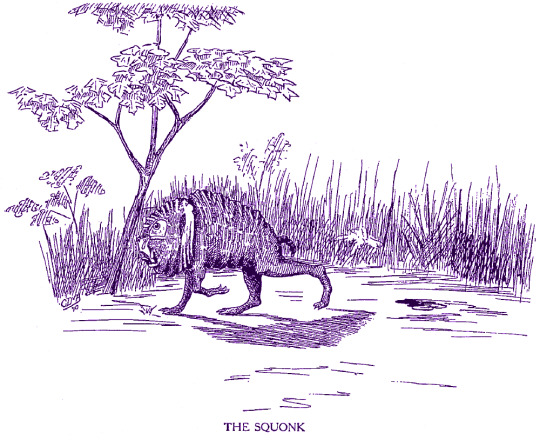
The first edition of Borges’ and Guerrero’s book, containing 82 pieces about mythical creatures, was published in Mexico in 1957, titled Manual de zoologia fantastica (Handbook of Fantastic Zoology). A second edition, re-titled El libro de los seres imaginarios (The Book of Imaginary Beings) was published in Buenos Aires a decade later (Editorial Kier, S. A., Buenos Aires, 1967), with thirty-four additional articles (now totaling 116 pieces). For the English-language edition, several of the original articles were corrected, emended, and/or revised with four new ones added. Thus the E. P. Dutton edition, published in 1969, contains 120 entries about fantastical creatures.
I do not know the year of the Italian translation of Borges' book, but so far as I know the Squonk was first referred to in the popular arts in Mario Bava’s film Ecologia del delitto (Ecology of Murder, 1971), released in the U. S. in 1972 first as Carnage and subsequently as Twitch of the Death Nerve. According to Tim Lucas, in his IPPY Award-winning Mario Bava: All the Colors of the Dark (2007), the Squonk was, rather interestingly, first popularly invoked in the context of post-coital pillow talk, when the character Frank asks his sex partner Laura, "Can't you hear it calling? It was a squonk." When asked by Laura what a Squonk is, Frank says the Squonk is a “dark-colored creature...covered with moles...And do you know what it does when it's captured? It dissolves into tears. Some of its peculiar qualities are sulkiness, diffidence, and possessiveness” (864). Tim subsequently observes that the Squonk is a figurative substitution for the figure of the female (Laura), who also has the traits of “sulkiness, diffidence, and possessiveness.” Hence, early in its popular usage, the Squonk serves as a heteroclite, figurative displacement for a sexualized human being.
The Squonk soon reappeared in Steely Dan's song “Any Major Dude Will Tell You,” included on the album Pretzel Logic, recorded late in 1973 and released in March 1974. One wonders whether Walter Becker and Donald Fagen learned of the Squonk through Mario Bava’s horror film or through the 1969 English-language version of Borges’ book. Given the lyrics it is hard to tell.
I never seen you looking so bad my funky one
You tell me that your super fine mind has come undone
CHORUS:
Any major dude with half a heart surely will tell you my friend
Any minor world that breaks apart falls together again
When the demon is at your door
In the morning it won’t be there no more
Any major dude will tell you
Any major dude will tell you
Have you ever seen a squonk’s tears? Well, look at mine
The people on the street have all seen better times
[CHORUS]
I can tell you all I know, the where to go, the what to do
You can try to run but you can't hide from what’s inside of you
[CHORUS]
Although Borges placed the Squonk in the category of fantastic creatures, I prefer to say that the Squonk is a cryptozoological creature. I know this is not precisely the correct usage of the word cryptozoological, but the reason I prefer this term is that carries the meaning of “hidden” or “hidden away" or even “secluded,” all behavioral characteristics associated with the Squonk, a solitary, acutely self-conscious, innately morbid creature that lurks in the woods, avoiding civilization and hence human beings, preferring to keep its own company. The Squonk hides itself away during the day, preferring, according to Borges (and his source, William Cox), the twilight and dusk.
The singer of “Any Major Dude Will Tell You” asks “you”—the unnamed person that would seem to be in the midst of some personal crisis—the rhetorical question, Have you ever seen a squonk’s tears? assuming that the answer has to be no: since the Squonk is a very retiring creature that leads a solitary lifestyle and is rarely seen by people, the singer assumes you has never seen a Squonk, let alone a Squonk’s tears. “Well, look at mine,” the singer says, the point of which is to tell you that while the singer may not be a Squonk, he is figuratively much like a Squonk, and perhaps even strongly identifies with a Squonk—an unhappy creature with a misfitting skin covered in warts and moles—that is, a highly singular, solitary species given to a morbid personality which, as the result of a certain genetic birthright, not a curse as such, simply a matter of genetics, has a rather unattractive, if not ugly, appearance (hence the self-consciousness). Moreover, the unnamed you can “try to run” but cannot “hide from what’s inside” of himself, meaning despite himself he must be acutely aware of his real self, his true identity, the ineluctable reality that you wants to run away from, to hide from, to deny—but cannot. He—you—cannot escape what he is; like the Squonk he cannot escape his own freakishness. The singer speaks to you as one can do only when one is like the one to whom one speaks. They are two of the same kind, equals: I and Thou. The same. Hence the Squonk is used here, figuratively, as a creature with whom one can identify that is not like other people, one that is different because of genetics, a certain ugliness as perceived by others.
Steely Dan likes such singular, solitary creatures, especially crepuscular ones—those who come out when the sun sets, like the Squonk. A bat is a crepuscular creature, as is the rather ungainly, awkward creature known the opossum, the closest actual living analogue to the Squonk, I think. Steely Dan likes such crepuscular figures; take, for instance, the figure of Deacon Blues, a figure that likens himself to a snake (viper), a creature that comes out at night. He tells us:
I crawl like a viper
Through these suburban streets
Make love to these women
Languid and bittersweet
I’ll rise when the sun goes down
Cover every game in town
A world of my own
I’ll make it my home sweet home
The next appearance of the Squonk was in the eponymously named song by Genesis, on the album A Trick of the Tail (1976), where the text of Cox's 1910 depiction of the Squonk was more or less re-told in narrative form. As in Steely Dan's song, there is a figure referred to as "you" to whom the lyrics are presumably addressed, but "you" is a much different kind of figure than the one in Steely Dan, the latter the one that interests me the most.
The Squonk: Part 1
This came up while I was trying to find out if Fagen and Becker learned of the squonk from the Borges & Guerrero book or elsewhere. (It seems to be commonly assumed that they did, but I haven’t found explicit confirmation or anything stated by Fagen/Becker themselves)
(Disclaimers: I don’t like all of this, especially the repeated references to “genetics” (:/), this also somewhat treats “ugliness” as an objective matter of being, but enough of this is interesting to me to keep it saved. “Steely Dan likes such crepuscular figures”....they sure do 😹
Unfortunately I’m also very much not well-versed in Folklore or critiques of folklore wrt settler-colonialism. the squonk at least does not seem to be yanked and decontextualized from indigenous people like certain other mythical creatures/spirits/beings which are wrongfully, disrespectfully misinvoked in popular fiction. though it is obviously still informed by the context of colonialism: copying this bit from the wiki page
Although the earliest written account of the squonk was from the 1910 book Fearsome Creatures of the Lumberwoods, there are no records of the tale being told in Pennsylvania before the book's publication. The next written iteration, from the 1939 book Fearsome Critters, suggested that the creatures had migrated from deserts to swamps to finally settle in Pennsylvania. As logging camps were continuously moving in the early 20th century, this could explain the “creature's” migration to Pennsylvania.
Lastly, all of the links in the original blog post’s text are broken. the only one I included here has been updated to a slightly different archive.org link for my own reference later)
27 notes
·
View notes
Text
full disclosure, I've not had time to actually properly read this yet, but I figured it would lend interesting discussion regardless
25 notes
·
View notes
Text
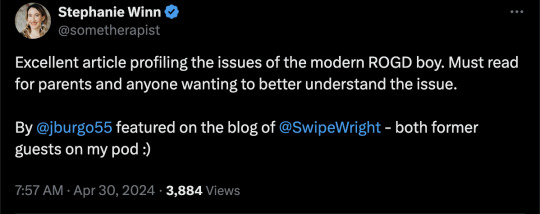
By: Joseph Burgo, Ph.D.
Published: Apr 29, 2024
When Lisa Littman posited the existence of rapid onset gender dysphoria (ROGD) back in 2018, she told a simple and compelling story: (a) we know from historical examples involving anorexia, self-harm, and recovered memory syndrome that adolescent girls are especially vulnerable to social contagions; and (b) because the current data show that cases of gender dysphoria and trans-identification among teenage girls appear to cluster in specific geographical locations and within friend groups, it therefore appears that (c) we’re in the midst of yet another social contagion afflicting the same cohort.
Simple to explain, easy to understand.
The increasing number of gender distressed boys is more challenging to explain and involves a perfect storm of psychological vulnerability colliding with cultural zeitgeist and new technologies. In brief, I believe that a generation of sensitive, awkward, and often highly intelligent boys is coming of age at a time when gender identity ideology suffuses the education system, social media, and online discussion forums, and when the cultural conversation around toxic masculinity and the patriarchy has made growing up to be an “oppressor” seem repellent.
This essay will flesh out the details of my hypothesis.
* * *
Most people don’t pay much attention to the fact that Lisa Littman’s landmark paper relied on survey responses from parents of adolescent boys (17.2 percent) as well as girls, largely because the “children described were predominantly natal female.” Examples used to illustrate that study’s themes nearly always depict adolescent girls, and the prior social contagions referred to by Littman have afflicted that cohort almost exclusively.
Littman’s paper also lays heavy emphasis on the “substantial change in demographics of patients presenting for care [at gender clinics] with most notably an increase in adolescent females and an inversion of the sex ratio from one favoring natal males to one favoring natal females.” Despite the presence of those teenage boys in Littman’s study, one comes away with the impression that ROGD is a novel phenomenon mostly occurring among teenage girls. Media coverage since has consistently described the condition as one “primarily” or “predominantly” afflicting that demographic.
The subtitle of Abigail Shrier’s 2020 book (“The Transgender Craze Seducing our Daughters”) likewise seems to exclude adolescent boys from the phenomenon. And in the United States today, the most prominent detransitioners speaking out against gender medicine or testifying in support of legislative bans on hormones and surgery for minor children are nearly all female: Chloe Cole, Laura Becker, Luka Haim, and Prisha Mosley. One might naturally make the assumption that the boys showing up at gender clinics today don’t differ much from the ones who for decades have wanted estrogen and sex reassignment surgery (SRS), and that this novel phenomenon of ROGD is all about the girls.
In truth, the number of adolescent boys claiming a trans identity has also risen dramatically, but that increase is overshadowed by the ahistorical explosion of girls showing up at gender clinics. Take, for example, commonly cited data from the Tavistock’s Gender Identity Development Service (GIDS):
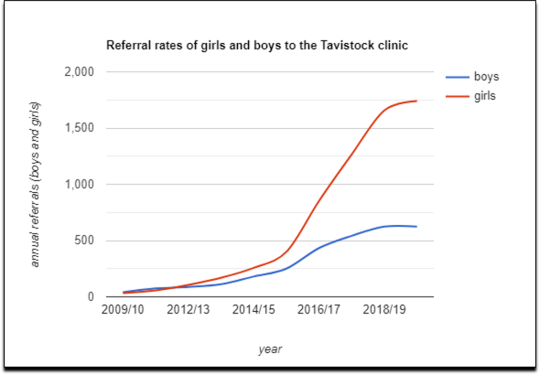
[ Source: Transgender Trend, July 19, 2019 ]
Due to the striking increase in girls depicted by the rising red line, one can easily miss the comparatively less dramatic increase in boys. But it’s nonetheless a very large increase (1490 percent since 2009 according to Transgender Trend); recent studies have shown that boys make up between 29 and 36 percent of gender distressed youth today.
Who are they, and does their psychological profile differ in any significant ways from gender distressed boys and men in the past?
To answer that question, we first need to understand their predecessors, those dysphoric males who showed up at gender clinics before the sudden rise in numbers that began after 2009.
The Blanchard Typology and Beyond
In the 1980s and 1990s, the Canadian sexologist Ray Blanchard proposed a psychological typology of gender dysphoria and transsexualism, categorizing the vast majority of trans-identified males requesting SRS into two groups: (a) homosexual transsexuals (HSTS)—that is, men exclusively attracted to other men and who had exhibited feminine behavior/appearance from an early age; and (b) autogynephilic transsexuals (AGPs)–heterosexual men who experience sexual arousal at the thought or image of themselves as female.[1] According to data from before 2009, HSTS represented roughly 40 percent and AGPs 60 percent of the men requesting SRS at gender clinics.[2]
Since he first articulated it, Blanchard’s typology has come under intense and persistent attack by trans rights activists (TRAs), though other researchers such as Michael Bailey (2003) and Anne Lawrence (2013) have written extensively in support of it. Based upon a January 30, 2024 comment Bailey made on 𝕏 (formerly Twitter), he apparently believes this typology still holds true for the dramatically increased number of boys and men seeking to transition: “Male adolescents are youth. And they are seeking gender transition. And most are probably AGP.”
As a psychotherapist working primarily with gender-distressed males, I’ve of course encountered both HSTS and AGPs as clients in my practice; I know they continue to show up at gender clinics for hormones and SRS, probably in the same relative proportions as before. But there’s a new cohort that doesn’t conform to the Blanchard typology, and in the pages ahead, I’ll attempt to describe and account for this new phenomenon, this Third Way into trans-identification. My views have evolved in part from my private psychotherapy practice working with trans-identified teenage boys, detransitioned males who realized too late (post-surgery) that they were gay, and men who struggle with autogynephilia.
My insights have been deepened by working with a coalition of professionals and parents of trans-identified male children and young adults who recently launched a website called ROGD Boys devoted to promoting awareness of this cohort. Much of what follows is informed by their research, my interviews with a dozen or so of these parents about their trans-identified boys, and visiting the many online websites and subreddits they brought to my attention. In doing so, I’ve followed in the tracks of my good friend Alasdair Gunn, whose series of articles When Sons Become Daughters, written for Quillette under the pseudonym Angus Fox, first blazed the trail and drew attention to the phenomenon of ROGD in boys back in 2021.
“The typical hyper-ruminative gender-questioning boy,” Gunn writes, “is smart, with communication and intellect out of proportion to his social skills. He’s excellent at mathematics in particular, and often in academic pursuits more generally, although this isn’t always reflected in grades. … [H]e’s likely to have a diagnosis of autism, Asperger’s syndrome or ADHD.” Often described as “quirky,” he hasn’t ever really fit in with his peer group and was likely bullied for his difference. Like virtually all teenagers, he wants desperately to belong, and for this reason seeks “an explanation for why he doesn’t fit in, especially one that comes in a form that his friends and classmates will readily understand.”
Survey research conducted by the coalition behind ROGD Boys supports Gunn’s description. With 124 parents providing survey answers, 81 percent identified their sons as either moderately, highly, or profoundly gifted. 20 percent of the boys had received an official diagnosis of autism and another 35 percent displayed “[p]oor social skills, sensitivity issues, poor eye contact, repetitive behaviors, etc. – but [were] not formally diagnosed” with autism spectrum disorder. About 32 percent of the boys struggled with symptoms of ADHD both before and after “coming out.” More than half of the parents described their sons as socially isolated, a condition which was exacerbated by the COVID lockdowns.
When given a choice of options to describe their son’s pre-adolescent gender behavior, almost 90 percent selected “Masculine (male – but avoided contact sports, somewhat introverted).” The remainder were identified as “Extremely Masculine,” and none were described as either “Feminine” or “Extremely Feminine.” These boys absolutely do not fit the profile of HSTS as described by Blanchard. Whether they qualify instead as AGP has been hotly contested. While certain critics on 𝕏 regularly denounce all trans-identified males, regardless of their age, as fetishistic perverts (that is, autogynephiles) and therefore unworthy of compassion or understanding, parents of trans-identified males are naturally unwilling to accept this description.
I don’t believe these boys are all autogynephilic, though a small unknown number may go on to develop that condition. Instead, I see these lonely boys as full of self-loathing and desperate to “identify out” of their hated self. The story of how and why that might occur involves a condition I’ve called “outsider shame”–the sense that you’re weird, defective, or damaged in a way that means that you don’t belong, not anywhere, and never will.
I believe the source of that shame can sometimes be found in a set of psychological traits that get lumped together as neurodivergence, encompassing autism spectrum disorder (ASD) and attention deficit hyperactivity disorder (ADHD). Sometimes the shame arises from being overly sensitive, awkward or especially gifted in ways that make a child stand out in an unfavorable way. Understanding those traits will also shed light on why these boys are so vulnerable to gender ideology and the siren song of transition.
As did Lisa Littman, I’d like to emphasize that this is a hypothesis requiring extensive research and follow up. We have so little data, and what we do have is of middling quality: the parent survey I cited above, for example, is only a small convenience sample. But we do know from Hannah Barnes’ book Time to Think (2023) that around 35 percent of the children referred to the Tavistock’s Gender Identity Development Service presented with “moderate to severe autistic traits”–a rate much higher than the under-2 percent rate of autism spectrum disorder to be found within the UK’s general child population.
And that 35 percent rate likely understates the true number of neurodivergent kids treated at GIDS. The British psychoanalyst Az Hakeem has said that, excluding the transvestic cross-dressers in his practice, 100 percent of the males he treated while working for the Tavistock “were on the autistic spectrum.”
Why do so many neurodivergent or otherwise unusual children self-identify as trans?
How It Feels to be Neurodivergent
To the extent they know anything about autism spectrum disorder, most people think it means having poor social skills and limited empathy for others. The Diagnostic and Statistical Manual, Fifth Edition (DSM-5) groups these and other features under the heading “Persistent Deficits in Social Communication and Social Interaction.” A second set of diagnostic criteria involve “Restricted, Repetitive Patterns of Behavior, Interests, or Activities.” These criteria describe people who find change unsettling and who insist upon consistency and sameness. They may have “[h]ighly restricted, fixated interests that are abnormal in intensity or focus.”[3]
Those diagnosed with ASD often have a hard time identifying and understanding what’s going on inside their bodies (interoception) and may also find it difficult to know which emotions they’re feeling (alexithymia). As a result, they can’t easily self-regulate their feeling states, are prone to explosive outbursts, and may react in ways that seem bizarre and incomprehensible to other people. For an analysis of “How Autistic Traits Can be Mistaken for Gender Dyphoria,” see the excellent essay by that title written by autism researcher Christina Buttons.
Adolescent boys who struggle with ASD come across to other people as “quirky”–the word used by Gunn in the passage quoted above and by virtually every parent interviewed for this essay in describing their sons. These boys strike their peers as weird or eccentric, as “geeks” or “freaks,” and they’re often bullied for their difference. The diagnostic criteria in the DSM-5 diagnosis may give a “scientific” description of someone who struggles with ASD but miss the agony of how it’s experienced within–the feeling that you’re damaged goods, different in a bad way from everyone else, and some kind of ugly alien.
As explained by Buttons,
[A]utistic people typically intuit that they differ from their peers, but are unable to pinpoint or describe the reason, which can be distressing. As they struggle to assimilate, they may become preoccupied with understanding themselves and how they fit in with those around them. In a desperate attempt to resolve their distress, they may “try on” different identities or diagnoses to see what “fits.”
Thus, identifying as “trans” may offer, as Gunn suggests above, “an explanation for why he doesn’t fit in, especially one that comes in a form that his friends and classmates will readily understand.”
I didn’t realize before that I was trans and that’s why I never fit in! I used to be a despised outsider but now I’m celebrated as a part of the queer community.
It’s not hard to understand why someone might want to “identify out” of a tormented self that feels defective and has been bullied by his peers. As adolescence approaches and the desire to belong intensifies, along comes gender identity ideology just in time to save these kids from outsider shame, to “explain” why they’ve never fit in. I believe this holds true for both adolescent boys and girls; it also applies to other kids who struggle with ADHD, and even to those who are so highly intelligent or sensitive that they stand out as “weird” in a social milieu that values conformity. Just recently, one of my teenage clients said it quite succinctly: “You do know I’ve always been a nerd, right? Like really, really strange. I just never understood that it was because I’m trans.”
It’s a simple and alluring explanation, one that also appeals to the autistic tendency to view the world in simplified terms of black-and-white. As Buttons explains, when autistic people “come across overly simplistic views about gender, it can provide them with a quick explanation for their troubles (they are transgender) and a ready-made solution (transition) to achieve what they hope will be a sense of normalcy and comfort in their bodies.” Their tendency toward rigid thinking and a dislike of change will make it difficult for them to relinquish this newfound identity.
A psychological approach to trans-identification gains little traction in public debates about the issue. Instead, a simplified explanation is endlessly advanced by critics such as Kellie Jay Keen: trans-identified males are “porn addled fetishists” and the entire phenomenon of men identifying as women can be accounted for by their addiction to pornography. I reject this theory but believe we must nonetheless understand the influence that pornography does have upon a subset of these boys.
Anime and Pornography
As first noted by Gunn in his series of Quillette articles, quirky trans-identified boys usually display an obsessive interest in anime, a form of hand-drawn or computer-generated animation that originated in Japan. Given how the algorithms work, it seems inevitable that, at some point, they will be exposed to the adjacent category of anime pornography and may become fascinated by it. Based on my clinical experiences with these boys, I see their interest in anime porn as a way station between childhood and fully adult sexuality, with child-like cartoon figures engaged in acts that come across as strangely innocent and sexually graphic at the same time.
At this point, some readers who have so far been empathizing with these boys might suddenly recoil. As I’ve noted before, few subjects elicit as much disgust as the idea of males masturbating in front of their computer screens, and you may be inclined to dismiss these boys as creeps. Bear in mind that boys included in the survey cited above were as young as 10 years old and clustered in their mid-teens. These young boys are struggling with and confused by their testosterone-fueled sexuality; it seems both unkind and simple-minded to write them off as sexual perverts.
Nor do we know how many of these boys have been seduced by more hardcore pornography online. Some boys I’ve seen in my practice seem detached from their bodies and find sexual arousal to be disturbing. Others are exploring their sexuality via anime pornography in a way that seems almost childlike, not compulsive in the way of boys who struggle with a true porn addiction. We need to keep an open mind and not resort to across-the-board categorization or harsh moral judgments.
In addition to anime, another type of pornography bears mentioning here: sissy hypno porn and forced feminization videos. In this genre, male viewers of (or performers in) the video are devalued, debased, and emasculated, usually by a dominant female who mocks them. They may be forced to wear women’s clothes against their will and scorned for being beta males–that is, “losers” who will never be “real men.” For a chilling example of how sissy hypno porn can persuade a vulnerable young man to believe he is trans, watch this recent episode on Benjamin Boyce’s YouTube channel.[4]
The boys I’ve described in this essay often feel that they are losers. Socially awkward misfits, they may feel hopeless about ever attracting females or having a girlfriend. Afflicted by outsider shame and sexually frustrated, they may then find ways to sexualize their shame through forced feminization videos, a topic I discussed in my presentation at Genspect’s 2023 Killarney conference; sometimes these young men take the transmax route and transform themselves into facsimiles of women, inspiring this humorous but disturbing meme: if you can’t get a girlfriend, become someone else’s girlfriend.
Boys that discover forced feminization porn online may in turn be “discovered” by older men, usually autogynephiles, who then groom the boys through conversations held in discord servers and private chats. The older men will encourage this dawning belief that they are girls trapped inside of male bodies and the boys must of course undertake medicalized transition. The groomers may offer compliments and praise for how “pretty” the boys look when cross-dressing and invite them to engage in sexting or the sharing of intimate images of their body parts.
One contentious topic is the relationship between pornography and trans-identification–that is, whether exposure to the former can cause the latter due to habituation and novelty-seeking. In his 2007 book The Brain that Changes Itself, Norman Doidge states: “When pornographers boast that they are pushing the envelope by introducing new, harder themes, what they don’t say is that they must, because their customers are building up a tolerance to the content.” The trans-activist Andrea Chu famously stated that it was exposure to sissy porn that did “make me trans.”
As I told Stephanie Winn in this podcast episode, I remain skeptical. I don’t believe that exposure to forced feminization videos can gradually transform a boy with a strong sense of self into a trans-identified female who finds degradation to be arousing. There must be a pre-condition, a prior sense of shame or inferiority which sissy hypno porn can then exploit.
A main contributor to that sense of shame is the way these quirky teens feel about themselves as boys and men.
Problematic Masculinity and the Male Sex Drive
In the article cited above, Christina Buttons notes that autistic kids tend to fixate on “social justice” issues in addition to transgender identities. In my experience, those social justice issues include the ongoing cultural critique of “toxic masculinity” and the patriarchy; nearly all the trans-identified boys I’ve encountered (either as clients in my practice or through interviewing their parents) subscribe to the oppressor-oppressed world view and consider white heterosexual males to be at the despicable top of that power structure.
These boys have a deeply problematic relationship with masculinity (whatever that means to them) and to their own bodies. Given their struggles to accurately identify bodily sensations and feeling states, they may find the emergence of sexual arousal during puberty to be profoundly unsettling; having learned to look down upon men, they may find their new masculine sexual urges to be disturbing. As I discussed in my presentation at Genspect’s Denver conference (November 2023), some of these boys never masturbate and find both spontaneous erections and nocturnal emissions to be profoundly unsettling. One of my trans-identified clients, a young man on the spectrum, told me he wanted to take estrogen and become a woman because female sexuality “aligned more with my value system.”
At the same time, these boys have often been the targets of toxic masculinity during adolescence, ridiculed and bullied for being strange. As the survey data discussed above demonstrate, they don’t necessarily display feminine traits and behaviors from an early age, but many boys on the spectrum do come across as “gender non-conforming” in that they don’t behave like typical boys. The link between symptoms of ASD and gender non-conformity/gender dysphoria has been established by a number of studies[5], although the reasons for it are yet to be explained. The study cited in the footnote below links it to a mediating factor–a poor ability to “mentalize” or to infer the interior state of mind of other people. Why a poor ability to mentalize should be linked to a higher incidence of gender dysphoria is but one of many questions needing further research.
I believe these boys come to “explain” the ways they differ from typical biological males (their odd behaviors that might have provoked bullying) by believing something simplistic like: If I don’t fit in with the boys, then I must be a girl. Black and white, either/or. In addition, their inability to identify their own emotions and to grasp the interior states of other people makes them vulnerable to overly cognitive or ideological explanations detached from internal feeling states. I’ll have more to say about the relationship between this kind of detachment (or dissociation) and trans-identification in a later essay.
While these boys may display or cultivate certain gender non-conforming traits and denounce traditional masculinity, they also come across as typical boys obsessed with video gaming, technology, science, and strategies of war–like my client mentioned above who described himself as a “nerd.” It’s not unusual for such a boy to discover another trans-identified male who shares his science nerd interests and to become romantically involved with him. As “transwomen,” they may consider themselves to be lesbians.
I’ve heard these boys express overpowering joy in finding someone like themselves, and relief from a profound sense of loneliness and being different. When you’ve always had a hard time mentalizing the interior states of other people, it comes as an immense relief to meet someone who appears to think and feel the same ways that you do. These romantic relationships seem more like puppy love, not terribly sexual, and steeped in the sense of sameness.
* * *
Comprehending the mysterious mental states of these boys may be difficult for those unfamiliar with neurodivergent or highly gifted and sensitive boys, but a combination of profound loneliness and shame holds the key. Most of us can understand how it feels to be an outsider, excluded or rejected; we can imagine what it’s like to sense that you’re weird or different from other people in a bad way. And after years of listening to relentless public discourse about toxic masculinity, it’s not hard to understand how boys coming of age might feel ambivalent, at the very least, to confront testosterone-fueled sexual urges that trouble them.
Gender identity ideology, spread across emergent technological platforms in recent years, has offered these boys an escape. As destructive as we know that ideology to be, we can also understand why a strange and lonely boy coming of age today, desperate to belong and feel good about himself, might embrace it.
--
[1] For those unfamiliar with this phenomenon, I’ve written two detailed accounts of autogynephilia for this Substack which can be found here and here.
[2] Blanchard R, Clemmensen LH, Steiner BW. Heterosexual and homosexual gender dysphoria. Arch Sex Behav. 1987 Apr;16(2):139-52. doi: 10.1007/BF01542067. PMID: 3592961.
[3] Canadian psychologist Ken Zucker believes that becoming fixated on gender identity might explain why kids on the spectrum are over-represented among trans-identified teens.
[4] Note how Shane, the subject of this episode, had absorbed and been influenced by the cultural conversation around toxic masculinity before he encountered sissy porn.
[5] See, e.g., Kallitsounaki A, Williams DM, Lind SE. Links Between Autistic Traits, Feelings of Gender Dysphoria, and Mentalising Ability: Replication and Extension of Previous Findings from the General Population. J Autism Dev Disord. 2021 May;51(5):1458-1465. doi: 10.1007/s10803-020-04626-w. PMID: 32740851; PMCID: PMC8084764.
#Joseph Burgo#ROGD#rapid onset gender dysphoria#autism#special interest#gender identity#gender ideology#gender identity ideology#queer theory#gender nonconforming#autism spectrum disorder#neurodivergence#neurodivergent#attention deficit hyperactivity disorder#religion is a mental illness
4 notes
·
View notes
Text
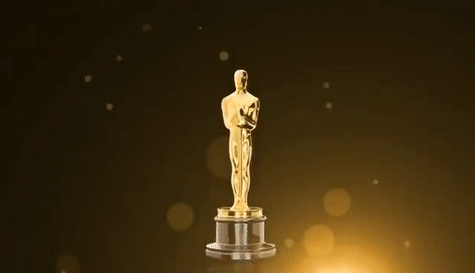
2023 Oscar nominations :
Best Picture
“All Quiet on the Western Front,” Malte Grunert, Producer
“Avatar: The Way of Water,” James Cameron and Jon Landau, Producers
“The Banshees of Inisherin,” Graham Broadbent, Pete Czernin and Martin McDonagh, Producers
“Elvis,” Baz Luhrmann, Catherine Martin, Gail Berman, Patrick McCormick and Schuyler Weiss, Producers
“Everything Everywhere All at Once,” Daniel Kwan, Daniel Scheinert and Jonathan Wang, Producers
“The Fabelmans,” Kristie Macosko Krieger, Steven Spielberg and Tony Kushner, Producers
“Tár,” Todd Field, Alexandra Milchan and Scott Lambert, Producers
“Top Gun: Maverick,” Tom Cruise, Christopher McQuarrie, David Ellison and Jerry Bruckheimer, Producers
“Triangle of Sadness,” Erik Hemmendorff and Philippe Bober, Producers
“Women Talking,” Dede Gardner, Jeremy Kleiner and Frances McDormand, Producers
Best Director
Martin McDonagh (“The Banshees of Inisherin”)
Daniel Kwan, Daniel Scheinert (“Everything Everywhere All at Once”)
Steven Spielberg (“The Fabelmans”)
Todd Field (“Tár”)
Ruben Östlund (“Triangle of Sadness”)
Best Lead Actor
Austin Butler (“Elvis”)
Colin Farrell (“The Banshees of Inisherin”)
Brendan Fraser (“The Whale”)
Paul Mescal (“Aftersun”)
Bill Nighy (“Living”)
Best Lead Actress
Cate Blanchett (“Tár”)
Ana de Armas (“Blonde”)
Andrea Riseborough (“To Leslie”)
Michelle Williams (“The Fabelmans”)
Michelle Yeoh (“Everything Everywhere All at Once”)
Best Supporting Actor
Brendan Gleeson (“The Banshees of Inisherin”)
Brian Tyree Henry (“Causeway”)
Judd Hirsch (“The Fabelmans”)
Barry Keoghan (“The Banshees of Inisherin”)
Ke Huy Quan (“Everything Everywhere All at Once”)
Best Supporting Actress
Angela Bassett (“Black Panther: Wakanda Forever”)
Hong Chau (“The Whale”)
Kerry Condon (“The Banshees of Inisherin”)
Jamie Lee Curtis (“Everything Everywhere All at Once”)
Stephanie Hsu (“Everything Everywhere All at Once”)
Best Adapted Screenplay
“All Quiet on the Western Front,” Screenplay by Edward Berger, Lesley Paterson & Ian Stokell
“Glass Onion: A Knives Out Mystery,” Written by Rian Johnson
“Living,” Written by Kazuo Ishiguro
“Top Gun: Maverick,” Screenplay by Ehren Kruger and Eric Warren Singer and Christopher McQuarrie; Story by Peter Craig and Justin Marks
“Women Talking,” Screenplay by Sarah Polley
Best Original Screenplay
“The Banshees of Inisherin,” Written by Martin McDonagh
“Everything Everywhere All at Once,” Written by Daniel Kwan & Daniel Scheinert
“The Fabelmans,” Written by Steven Spielberg & Tony Kushner
“Tár,” Written by Todd Field
“Triangle of Sadness,” Written by Ruben Östlund
All Quiet on the Western Front”, James Friend
“Bardo, False Chronicle of a Handful of Truths,” Darius Khondji
“Elvis,” Mandy Walker
“Empire of Light,” Roger Deakins
“Tár,” Florian Hoffmeister
Best Documentary Feature Film
“All That Breathes,” Shaunak Sen, Aman Mann and Teddy Leifer
“All the Beauty and the Bloodshed,” Laura Poitras, Howard Gertler, John Lyons, Nan Goldin and Yoni Golijov
“Fire of Love,” Sara Dosa, Shane Boris and Ina Fichman
“A House Made of Splinters,” Simon Lereng Wilmont and Monica Hellström
“Navalny,” Daniel Roher, Odessa Rae, Diane Becker, Melanie Miller and Shane Boris
Best Documentary Short Film
“The Elephant Whisperers,” Kartiki Gonsalves and Guneet Monga
“Haulout,” Evgenia Arbugaeva and Maxim Arbugaev
“How Do You Measure a Year?” Jay Rosenblatt
“The Martha Mitchell Effect,” Anne Alvergue and Beth Levison
“Stranger at the Gate,” Joshua Seftel and Conall Jones
Best Film Editing
“The Banshees of Inisherin,” Mikkel E.G. Nielsen
“Elvis,” Matt Villa and Jonathan Redmond
“Everything Everywhere All at Once,” Paul Rogers
“Tár,” Monika Willi
“Top Gun: Maverick,” Eddie Hamilton
Best International Feature Film
“All Quiet on the Western Front” (Germany)
“Argentina, 1985” (Argentina)
“Close” (Belgium)
“EO” (Poland)
“The Quiet Girl” (Ireland)
Best Original Song
“Applause” from “Tell It Like a Woman,” Music and Lyric by Diane Warren
“Hold My Hand” from “Top Gun: Maverick,” Music and Lyric by Lady Gaga and BloodPop
“Lift Me Up” from “Black Panther: Wakanda Forever,” Music by Tems, Rihanna, Ryan Coogler and Ludwig Goransson; Lyric by Tems and Ryan Coogler
“Naatu Naatu” from “RRR,” Music by M.M. Keeravaani; Lyric by Chandrabose
“This Is a Life” from “Everything Everywhere All at Once,” Music by Ryan Lott, David Byrne and Mitski; Lyric by Ryan Lott and David Byrne
Best Production Design
“All Quiet on the Western Front,” Production Design: Christian M. Goldbeck; Set Decoration: Ernestine Hipper
“Avatar: The Way of Water,” Production Design: Dylan Cole and Ben Procter; Set Decoration: Vanessa Cole
“Babylon,” Production Design: Florencia Martin; Set Decoration: Anthony Carlino
“Elvis,” Production Design: Catherine Martin and Karen Murphy; Set Decoration: Bev Dunn
“The Fabelmans,” Production Design: Rick Carter; Set Decoration: Karen O’Hara
Best Visual Effects
“All Quiet on the Western Front,” Frank Petzold, Viktor Müller, Markus Frank and Kamil Jafar
“Avatar: The Way of Water,” Joe Letteri, Richard Baneham, Eric Saindon and Daniel Barrett
“The Batman,” Dan Lemmon, Russell Earl, Anders Langlands and Dominic Tuohy
“Black Panther: Wakanda Forever,” Geoffrey Baumann, Craig Hammack, R. Christopher White and Dan Sudick
“Top Gun: Maverick,” Ryan Tudhope, Seth Hill, Bryan Litson and Scott R. Fisher
Best Animated Feature Film
“Guillermo del Toro’s Pinocchio,” Guillermo del Toro, Mark Gustafson, Gary Ungar and Alex Bulkley
“Marcel the Shell With Shoes On,” Dean Fleischer Camp, Elisabeth Holm, Andrew Goldman, Caroline Kaplan and Paul Mezey
“Puss in Boots: The Last Wish,” Joel Crawford and Mark Swift
“The Sea Beast,” Chris Williams and Jed Schlanger
“Turning Red,” Domee Shi and Lindsey Collins
Best Animated Short Film
“The Boy, the Mole, the Fox and the Horse,” Charlie Mackesy and Matthew Freud
“The Flying Sailor,” Amanda Forbis and Wendy Tilby
“Ice Merchants,” João Gonzalez and Bruno Caetano
“My Year of Dicks,” Sara Gunnarsdóttir and Pamela Ribon
“An Ostrich Told Me the World Is Fake and I Think I Believe It,” Lachlan Pendragon
Best Costume Design
“Babylon,” Mary Zophres
“Black Panther: Wakanda Forever,” Ruth Carter
“Elvis,” Catherine Martin
“Everything Everywhere All at Once,” Shirley Kurata
“Mrs. Harris Goes to Paris,” Jenny Beavan
Best Live Action Short
“An Irish Goodbye,” Tom Berkeley and Ross White
“Ivalu,” Anders Walter and Rebecca Pruzan
“Le Pupille,” Alice Rohrwacher and Alfonso Cuarón
“Night Ride,” Eirik Tveiten and Gaute Lid Larssen
“The Red Suitcase,” Cyrus Neshvad
Best Makeup and Hairstyling
“All Quiet on the Western Front,” Heike Merker and Linda Eisenhamerová
“The Batman,” Naomi Donne, Mike Marino and Mike Fontaine
“Black Panther: Wakanda Forever,” Camille Friend and Joel Harlow
“Elvis,” Mark Coulier, Jason Baird and Aldo Signoretti
The Whale,” Adrien Morot, Judy Chin and Anne Marie Bradley
Best Original Score
“All Quiet on the Western Front,” Volker Bertelmann
“Babylon,” Justin Hurwitz
“The Banshees of Inisherin,” Carter Burwell
“Everything Everywhere All at Once,” Son Lux
“The Fabelmans,” John Williams
Best Sound
“All Quiet on the Western Front,” Viktor Prášil, Frank Kruse, Markus Stemler, Lars Ginzel and Stefan Korte
“Avatar: The Way of Water,” Julian Howarth, Gwendolyn Yates Whittle, Dick Bernstein, Christopher Boyes, Gary Summers and Michael Hedges
“The Batman,” Stuart Wilson, William Files, Douglas Murray and Andy Nelson
“Elvis,” David Lee, Wayne Pashley, Andy Nelson and Michael Keller
“Top Gun: Maverick,” Mark Weingarten, James H. Mather, Al Nelson, Chris Burdon and Mark Taylor
18 notes
·
View notes
Text
Supporters of Creative Community For Peace Open Letter (Support of Israel) - Part 1/2
The letter condemns the Supernova Music Festival attack on Oct 7, but fails to mention Palestinian civilians, then states:
"As Israel takes the necessary steps to defend its citizens in the coming days and weeks, social media will be overrun by an orchestrated misinformation campaign spearheaded by Iran."
see full letter (x)
Supporters:
Ari Ingel, Executive Director, Creative Community For Peace
Aaron Bay-Schuck, CEO/Co-Chairman, Warner Records
Brad Ableson, Animation Director, Illumination
Natalie Abrams, Co-EP
Deeba Abrishamchi, Senior Manager, A&R, Universal Music Publishing Group
Jason Adelman, VP, Brand Innovators Labs
Orly Adelson, Former President of ITV Studios, America
Marty Adelstein, CEO, Tomorrow Studios
Ali Adler, Producer
Ben Adler, Musician
Rachel Adler, Agent, CAA
Dan Ahdoot, Comedian
Jason Alexander, Actor/Director
Sasha Alexander-Ponti, Actress/ Director, The Ponti Company
Karen Allen, Actor/Director, Blue Willow Productions Inc.
Dan Aloni, Partner, WME
Kayla Alpert, Writer
Cindy Ambers, Co-Owner, Art/Work Entertainment
Leon Angel, Joint Head of Football, CAA Base Limited
Dennis Arfa, Chairman, IAG Music, Independent Artist Group
Jarred Arfa, EVP and Head of Music, Independent Artist Group
Taryn Ariel, Agent
Antonina Armato, Founder, Heroine Music Group
Jeff Astrof, Showrunner, Warner Brothers
Liz Astrof, Writer/Producer, 20th Century/Disney
Eve Attermann, Literary Agent, WME
Michael Auerbach, Partner, Jackoway Austen
Nate Auerbach, Partner, Versus Creative
Karl Austen, Attorney, Jackoway Austen
Meredith Averill, TV Writer/Showrunner,
Shahar Avnet, Creative Director & Founder, SHAHAR AVNET
Asi Azar, TV Host, Keshet
Irving Azoff, Chairman, Full Stop Management
Ivor Baddiel, Scriptwriter and Author
Gary Barber, CEO, Spyglass Media
Moshe Barkat, CEO, ColorTime, LLC.
Eve Barlow, Music Journalist
Jonathan Barnett, Chairman, CAA Stellar
Romi Barta, Writer
Jonathan Baruch, Partner, Rain
Richard Baskind, Partner & Head of Music, Simons Muirhead & Burton
Lance Bass, Music Artist
Neal Batra, President, Tradition Pictures
Brian Baumgartner, Actor
Jaime Becker, Writer/producer
M. Becker
Matt Earl Beesley, Director/Producer, This Much Films
Idan Ben abou, Football Agent, ISCOUT LTD
Karyn Ben-Gal, A&R Coordinator, Disney Music Publishing
Aton Ben-Horin, VP of Global A&R, Atlantic Records Group
Rachel Bendavid, Head of Scripted Programming, BBC Studios/Lionsgate Partnership
Pablo Bendersky, Producer/Artist
Steven Bensusan, President, Blue Note Entertainment Group
Ram Bergman, Producer, T-Street
Adam Berkowitz, Founder and President, Lenore Entertainment Group
Jim Berkus, Chairman of the Board of Directors, UTA
Jordan Berkus, Talent Agent, UTA
Greg Berlanti, Writer/Director/Producer, Berlanti Productions
Gail Berman, CEO, The Jackal Group
Luc Bernard, Director, Voices of the Forgotten
TJ Bernardy, Talent Agent, WME
Carolyn Bernstein, Exec VP, National Geographic
Jeff Bernstein, Partner & Board Member, Jackoway Austen Tyerman Wertheimer Mandelbaum Morris Bernstein Trattner & Klein
Heather Besignano, CEO & Founder, ICON PR
Mayim Bialik, Actor/Host/Author
Sharon Bialy, Co-Owner of Bialy/Thomas Casting, Bialy/Thomas & Associates
Matthew Bierman, Producer
Allison Binder, Partner, Goodman Genow Schenkman Smelkinson & Christopher
Joshua P. Binder, Partner, Rotherberg, Mohr, and Binder LLP
Neil Blair, Partner, The Blair Partnership
Rachel Bloom, Writer
Doug Blu, Commercial Dept, Eris Talent Agency
Robyn Bluestone, Talent Manager, Robyn Bluestone Management
Steven Blume, COO, Content Partners LLC
Sawyer Bock, Coordinator, Elevate Entertainment
Evan Bogart, Songwriter & CEO, Seeker Music
Laura Bonner, Partner, WME
Michael Borkow, Writer/Producer, Tinder Hill Productions, Inc.
Betsy Borns, Television Writer/Producer
David Bradley, Partner, WME
Alan Braun, Agent, CAA
Dan Brecher, Principal/Owner, Rothman Brecher Ehrich Livingston
Chris Bremner, Screenwriter, Unknown Quantity
Tor Breon, Music Agent, WME
Theodore Bressman, Screenwriter
Josh Brill, Writer/Producer
Karen Brodkin Watson, EVP, Endeavor
Aline Brosh McKenna, Writer/Director/Producer
Brantley Brown, Talent Representative, Authentic Talent and Literary Management
Amy Brownstein, Founder, PRStudio
Ashley Brucks, President of Screen Gems, Sony
AJ Buckley, Artist
Mitch Bukhar, Talent Agent, CAA
Danny Burstein, Actor
Joannie Burstein Besser, Owner/Manager, Burstein Company
David Byrnes, Partner, Ziffren Brittenham LLP
Omri Caaspi, Former Professional Basketball Player
Ryan Cabrera, Musician
Trey Callaway, Television Showrunner
Bryan Carmel, Independent Producer, The Very Specific Corporation
Tia Carrere, Actress
Madeline Carver, Account Service Representative, Vevo
Markell Casey, Music Executive
Nir Caspi, Partner, Non-Scripted TV, WME
Daniela Cassorla, Associate, Grubman Shire Meiselas & Sacks, PC
Jennifer Cecil, Writer/Producer
Jared Ceizler, Talent Manager, MGMT Entertainment
Brian Celler, Founder, Bravo Charlie Management
Pamela Charbit, A&R Manager, Atlantic Records
Olivier Chastan, Founder & CEO, Iconoclast
Cliff Chenfeld, Co-Founder, Razor & Tie
Ted Chervin, Agent, CAA
Emmanuelle Chriqui, Actor
Jeffrey Ciabattari, Talent Manager
Patrick Clifton, Writer, Promise & Potential
Andrew Cohan, Co-Founder/C.E.O., ACI Licensing LLC
Ayala Cohen, Talent Agent, CAA
Etan Cohen, Writer/Director
Joe Cohen, Agent, CAA
Alex Cole, President, Elevate Entertainment
Lindsay Conner, Partner, O’Melveny & Myers
Henrietta Conrad, CEO, The Optimism Company
Lionel Conway, SVP, BMG
Adam Cooper, Partner, Jackoway Austen, et al.
Leanne Coronel, President, The Coronel Group
Raye Cosbert, Managing Director, Metropolis Music
Ben Cosgrove, CEO, Leviathan Productions
Cassidy Crosby, Associate Manager of Marketing, Vevo
Jamie Lee Curtis, Actress
R.J. Cutler, Filmmaker, This Machine
Avi Dahan, Attorney, Boyarski Fritz LLP
Ian Daly, Head of Brand Strategy, Live Nation
Hannah Damico, Junior Designer, Vevo
Greg Daniels, Writer
Dani Darling, Entertainment Attorney, LaPolt Law
Ben Davis, Partner, Co-Head of Digital, WME
Doug Davis, The Davis Firm
Mitch Davis, Concert Promoter, The Artist Partnership
Taylor Dayne, Artist
Danielle Del, Partner, D2 Management
Jamie Denbo, Co-EP Grey’s Anatomy, ABC/Disney
David DeSantos, CEO, Cottonwood Productions
Meredith DeSantos, Writer/Producer
Josh Deutsch, Chairman/CEO, Premier Music Group
Ken Deutsch, Global Co-Chair, Entertainment and Media Group, Paul Hastings LLP
Vikram Dhawer, Partner, Authentic Talent & Literary Management
Avi Diamond, Director, Film & TV Licensing, Warner Music Canada
Michael Diamond, Talent Manager/Partner, MGMT Entertainment
Jessica DiBiase, Talent Agent, CAA
Lucy Dickins, Global Head of Music and Touring, WME
David DiGilio, Showrunner/Executive Producer, THE TERMINAL LIST – Amazon Prime
Kosha Dillz, Artist, Rapper
Matt Dines, Producer
Lee Dinstman, Partner, IAG
Brian Dobbins, Co-CEO, Artists First
Efrat Dor, Actor
Joella Dorenbaum, Talent Agent, CAA
Craig Dorfman, Partner/Manager, Three Six Zero
Rick Dorfman, Partner/Head of Comedy & Development, Authentic Talent & Literary Management
Michael Douglas, Actor/Producer
David Draiman, Frontman of the band Disturbed
Bill Duffy, Head of Basketball, WME Sports
Alex Edelman, Comedian/Writer
Julian Edelman, Co-Founder, Coast Productions
Scott Edelman, Senior Partner, Gibson Dunn
Lisa Edelstein, Actor
Jason Egenberg, CEO/Producer, Tiny Riot Entertainment
Jon Ehrlich, Founder/Composer, Qwire
Matthew Einstein, CEO, Tradition Pictures
Jessica Elbaum, Producer, Gloria Sanchez productions
Natasha Elie, Marketing Assistant, Atlantic Records
Talya Elitzer, Co-Founder, Godmode Music
Andy Elkin, Agent, CAA
Craig Emanuel, Partner, Entertainment & Media, Paul Hastings
Robert Emmer, Founding Partner, Shout! Factory
Alexandra Emmerman, Agent, CAA
Hannah Epstein, Agent, CAA
Dan Erlij, Partner, Co-Head of TV Lit, UTA
Ingrid Escajeda, Showrunner/EP
Henry Eshelman, Managing Director, PMG: Platform Media Group
Nancy Etz, Agent, CAA
Ikenna Ezeh, Partner, WME
Ron Fair, Record Producer & CEO, Faircraft Inc.
Veronica Falcón, Actor
Donny Farber, Dan Farber
Sharon Farber, Composer, Soaring Taurus, LLC
James Farrell, Agent, WME
Daniel Federman, Owner, Maccabi Tel-Aviv
Oded Fehr, Actor
Erik Feig, Founder/CEO, PICTURESTART
Jaime Feld, Talent Agent, CAA
James Feldman, Partner, Lichter Grossman Nichols Adler Feldman & Clark
Josh Feldman, Head of Film and Television, Altar Rock Pictures
Katie Feldman, Publicist
Ryan Feldman, Partner, WME
Patti Felker, Partner, Felker Toczek Suddleson Abramson McGinnis Ryan LLP
Jacob Fenton, Partner, UTA
Ken Fermaglich, Partner, UTA
Hannah Fidell, Filmmaker
Tommy Finkelstein, Head of Business Affairs, General Counsel, Independent Artist Group
Dylan First, Agent, WME
Bradley Fischer, Producer
Alexis Fisher, CEO, Timeline Management
Scott Fisher, Select Management Group
Seth Fisher, Showrunner
David Fishof, Producer and Music Executive
Wayne Fitterman, Talent Agent, WME
Carlos Fleming, Partner, WME
Josh Fluxgold, Founder and President, ONEWAY.
Beau Flynn, Producer, FlynnPictureCo
Erica Forster, Entertainment Attorney
Gary Foster, Principal, Krasnoff Foster Productions
Lauren Fox, TV Literary Agent, CAA
Sarah Francus, Manager, Roc Nation
Etan Frankel, Writer
Ashley Franklin, Partner/Talent Manager, Thruline Entertainment
Jordan Frazes, Founder, Frazes Creative
Bryan Freedman, Founding Partner, Freedman, Taitelman + Cooley
Jeffrey Freedman
Jessica Freedman, Singer, SAG-AFTRA
Jay Jay French, French Management, Twisted Sister
Geordie Frey, Owner, GEF Entertainment
Michael Fricklas
Stuart Fried, Grubman Shire Meiselas & Sacks
Jody Friedericks, Executive Creative Director, 160over90
Adam Friedman, Executive, CAA
Adina Friedman, President, Friends at Work Management
Daryl Friedman, Former Chief Advocacy & Industry Relations Officer, The Recording Academy
Stephen Fry, Actor/Writer
Antoine Fuqua, Producer/Director
Bryan Furst, Producer
Sean Furst, Producer, Global Position Studios
Gal Gadot, Actress, Producer, Pilot Wave
Alex Gansa, Writer/Producer, Gansa Films Inc.
Siri Garber, CEO & Founder, Platform Public Relations
Andy Garcia, Actor
Risa Bramon Garcia, Casting Director, Teacher, Director, The BGB Studio
David Gardner, President, Artists First
Jeremy Garelick, Founder / Owner, American High
Bruce Garfield, Executive Director, Columbus Music Commission
Spencer Garrett, Actor
Nancy Gates, Partner, UTA
Willie Gault, Retired NFL Player
Andrew Genger, Manager, Red Light Management
Paul George, Manager, Podwall Entertainment
David Gersh, Co-President Gersh Agency, Gersh Agency
Gary Gersh, President, Global Touring, A.E.G.
Jody Gerson, Chairman and CEO, Universal Music Publishing Group
Risa Gertner, Agent, CAA
Pete Giberga, President, AWAL
Jill Gillett, Agent, WME
Gary Ginsberg, Senior VP, SoftBank Group Corp.
Joyce Giraud, Actress/Model
Fran Glasenberg, Foundation Executive, CAA
Nikki Glaser, Comedian
Patricia L. Glaser, Partner, Glaser Wei Fink Howard Jordan & Shapiro
Daniel Glass, Founder/ CEO, Glassnote Records
Karen Glauber, President, HITS Magazine
David Glick, Founder & CEO, Edge Group
Joshua Glick, Manager
Jonathan Glickman, Founder, Panoramic Media Company
Jordan Glickson, VP, Music & Talent, Vevo
Mark Goffman, Executive Producer, Off The Cliff Entertainment
Ross Golan, Songwriter, Unknown Music Publishing
Elon Gold, Comedian/Actor
Hannah Gold, VP Marketing, Interscope Records
Judy Gold, Comedian, Actor, Writer
Andrew Goldberg, Writer/Producer
Dana Goldberg, Chief Creative Officer, Skydance
Saul Goldberg, Agent, CAA
Tracey Goldblum, VP commercials, KMR
Tony Goldring, Agent, WME
Alistair Goldsmith, President, Chosen Music
Lindy Goldstein, Producer, Lindy Goldstein Productions
Michal Goldstein, Co-President, Basset Hound Distribution
Michael Goldwasser, President/Co-Founder, Easy Star Records
Nichole Gomez, Agent, Eris Talent Agency
Adrianne Gonzalez, Owner, BYAGINC
Alissa Goodman, Manager, Authentic Talent & Literary Management
Brandon Goodman, Co-Founder / Co-Owner, Best Friends Music
Howard Gordon, Writer/EP
Jonathan Gordon, CEO, 1916 Enterprises LLC
Michael Gordon, Partner, CAA
Jeff Gorin, Partner/Talent Agent, WME
Hildy Gottlieb, Agent in MP Talent, CAA
Karen Gottlieb, Partner, Grubman Shire Meiselas & Sacks, P.C.
Andrew Gould, Music Executive
David Graber, SVP, Content Licensing, Warner Brothers Discovery
Jessica Graboff, Agent, CAA
Marc Graboff, Consultant
Nicholas Grad, President, FX Entertainment
Cary Granat, Co-Founder and Partner, Destiny Media, EMH Media
Jack Dylan Grazer, Actor, JDG Creative Services
Michael Green, Writer
Roger Green, Partner, WME
Trudy Green, Trudy Green Management/HK
Alison Greenberg, Author and screenwriter,
Scott Greenberg, Partner, LBI
Stacy Greenberg, Head of Scripted, US, Merman
Steve Greenberg, Founder and President, S-Curve Records
Ava Greenfield, Scripted TV Agent, CAA
Josh Greenstein, President Sony Pictures Motion Picture Group
Dan Gregor, Writer
Adam Griffin, Manager, Vault Entertainment
Iris Grossman, Partner, Echo Lake Entertainment
Jonathan Grossman, Coordinator, Elevate Entertainment
Lynn Grossman, CEO, Secret Road
Jeremy Gruber, Friends at Work, Head of Artist Marketing
Tony Guanci, Chairman, EDGEOUT
Marc Guggenheim, Writer/Producer
Gary Gulman, Comedian/Writer
Julie Gurovitsch, Music Producer, The Tonight Show
Paul Haas, Partner, WME
Michael Hackman, CEO, Hackman Capital Partners
Amanda Hacohen, Agent, WME
Amir Haddad, Singer Songwriter, Warner Music France
Shirley Halperin, Editor-in-Chief, Los Angeles Magazine
Marilou Hamill
Mark Hamill, Actor
Alicia Hannah-Kim, Actor
Amy B. Harris, Writer/Producer
Lynn Harris, Producer/Partner, 6th & Idaho
Ronnie Harris, Partner, Harris & Trotter LLP
Ashley Harrison, Agent, CAA
Jo Hart, Founder, Hart Media
Becky Hartman Edwards, Writer/Producer, Two in A Tub Productions
Ryan Hayden, Partner, UTA
Josh Heald, Writer/Producer
Patricia Heaton, Actress/Producer, FourBoysEntertainment
Julianne Heitzer, Attorney, Jackoway Austen Tyerman Wertheimer Mandelbaum Morris Bernstein Trattner & Klein
Scott Henderson, Partner, WME
Karen Hermelin, EVP, Marketing, Strategy & Insights, Paramount Pictures
Peter Hess, Co-Head, CAA Commercials Endorsements
Stephen Hill, Actor
Avi Hirshbein, A&R Coordinator, Electric Feel Ent.
Beth Holden-Garland, Manager, Authentic
Shawn Holiday, Full Stop Management
Laura Holstein, Producer
Billy Hopkins, Casting Director, Hopkins Ingram Casting
Matthew Horowitz, Agent, CAA
Samuel Horowitz, Television/Film Writer
Chris Horsman, Talent Agent, CAA
Allison Howard, Talent Agent, WME
Andrew Howard, Attorney, Jackoway Austen Tyerman Wertheimer Mandelbaum Morris Bernstein Trattner & Klein
Linda Edell Howard, Attorney, Novick Law
Lindsay Howard Parker, EVP, Head of Scripted Literary, Independent Artist Group
David Hunt, Founder, FourBoys Entertainment
Michelle Hurd, Actor and Activist
Jon Hurwitz, Showrunner
Richard “BournRich” Ingram, Artist/Creative Director
Susana Ivanir, Executive, CAA
Basil Iwanyk, Producer, Thunder Road Films
Chukwudi Iwuji, Actor
Levi Jackson, Agent, WME
Mara Jacobs, Producer
Neil Jacobson, Founder of Hallwood Media
Chris Jacquemin, Partner, WME
Jonathan Jakubowicz, Writer & Director, Epicentral Studios
Tim James, Co-Founder, Rock Mafia
Maxwell Jenkins, Actor
Raymond Jimenez, Talent Manager, Zero Gravity Management
Brandt Joel, Agent, WME
Douglas Johnson, Agent, CAA
Jasmine Joseph-Danielpour, Manager
Nancy Josephson, Partner, WME
Al Joyner, Former Olympian
Brooke Jung, Talent Agent, WME
Heather Kadin, President, Scripted TV Range Studios, Range Media Partners
Rachel Kalban, Children’s Television Producer
Rachel Kaplan, Producer, Absecon Entertainment
Marisa Kapust, Attorney, Jackoway Austen Tyerman Wertheimer Mandelbaum Morris Bernstein Trattner & Klein
Dorian Karchmar, Agent and Partner, WME
Mike Karz, Partner, Gulfstream Pictures
Zach Katz, President and COO, FaZe Clan
Ryan Kavanaugh, Founder, Proxima
Stephen Kay, General Counsel, Roku, Inc.
Jonathan Kellerman, Novelist
Cari Kenny, Talent Agent, Eris Talent Agency
Lee Kern, Writer
Craig Kestel, Partner, WME
Ilan Kidron, Artist & Musician
April King, Talent Agent, WME
Russell King, Director, King Law Firm
Melanie Kirschbaum, Writer/Co-EP
David Kissinger, CEO, DK Media
Dana Klein, Writer/Creator, Can’t Get Five Productions
Jenny Klein, Writer
Lance Klein, Partner, WME
Barbie Kligman, Writer/Producer
Scott Kluge, President, Tremendous Entertainment
Zachary Knighton, Actor, Independent
Amanda Kogan, Agent, The Gersh Agency
Keetgi Kogan Steinberg, Writer/Producer
Blair Kohan, Board Member/Partner, UTA
Jenji Kohan, Writer/Producer/Showrunner, Tilted Productions
Ben Kohn, CEO, Playboy
Courtney Kohn
Marc Korman, Agent, WME
Barry Kotler, Agent, CAA
Steve Kram, CEO, Content Partners LLC
Ynon Kreiz, Chairman and CEO, Mattel, Inc.
Rick Krim, CEO, Krim Music + Media
Erik Kritzer, Owner/Partner, Link Entertainment
Josh Kurfirst, Music Agent, WME
Andrew Kurland, Talent Agent, CAA
Michelle Kydd, Chief Innovation Officer, CAA
Stephanie LaFera, Head of Electronic, WME
Angela LaFever, Management, Independent
Ricki Lake, Television Host/Actress
Evan Lamberg, President, North America, Universal Music Publishing
Amy Landecker, Actress
John Landgraf, CEO, FX Networks
Gabz Landman, VP, A&R, Warner Records
Sherry Lansing, Former CEO, Paramount Pictures/Founder, The Sherry Lansing Foundation
Dina LaPolt, Entertainment Attorney, LaPolt Law, PC
Estelle Lasher, President, Lasher Group
Sanaz Lavaedian, SVP of Music, MOCEAN
Inbar Lavi, President, Tuna Productions
Dennis Lavinthal, Owner, Hits magazine
Adam Leber, Founder, REBEL
Jared LeBoff, Producer, Marc Platt Productions
Sara Leeb, Agent, CAA
Michelle Leibel, Writer/Producer, One Trick Pony Productions
Doron Leidner, Football Player, Olympiacos
Carol Leifer, Comedian/Writer
Jeffrey Lenkov, Attorney
Peter Lenkov, Writer
Eli Leonard, Comedian/Writer/Actor
Gerri Leonard, Partner, Leonard Business Management, Inc.
Greg Lessans, Weed Road Pictures
Colin Lester OBE, Founder/Chairman, JEM Music Group
David Leventhal, Business Manager, Citrin Cooperman
Arielle Lever, Agent, CAA
Zachary Levi, Actor
Ben Levine, Partner, Link Entertainment
Michael Levine, Co-head, CAA Sports, Creative Artist Agency
Ashley Levinson, Producer
Steve Levitan, Writer/EP
Alexandra Levy, Writer
David Levy, Partner, WME Entertainment
David Levy, Founder and CEO, Back Nine Ventures
Marcus Levy, Agent, WME
Richard B. Levy, Managing Director, Executive Talent Management, P.C.
Michelle Lewis, Executive Director/Songwriter, SONA
Micha Liberman, President, Mind Meld Arts
Chuck Liddell, UFC Hall of Famer
Marc Lieberman, President, Above Average Productions
Sean Liebowitz, Agent, CAA
Sydney Lipsitz, Chief of Staff, CAA
Cory Litwin, Managing Partner, Music, Range Media Partners
Steve Lobel, CEO, LMG
Jonathan Lomma, Lawyer, WME
Alexandria Longo, Director of PR/Publicist, Blended Strategy Group
David Lonner, CEO, The David Lonner Co.
Jonathan Lonner, Partner, Grubman Shire Meiselas & Sacks, P.C.
George Lopez, Comedian/Actor
Amy Lord, CEO, Eris Talent Agency
Dean Lorey, Showrunner
Bryan Lourd, CEO, CAA
Richard Lovett, Co-Chairman, CAA
Doug Lucterhand, Agent
Kris Lythgoe, TV Producer
Nigel Lythgoe, President, Nigel Lythgoe Productions
Meghan Mackenzie, Agent, WME
Ben Maddahi, SVP A&R, Columbia Records + President, Unrestricted Publishing & Mgmt
Allysa Mahler, Partner, WME
Melissa Malkin, Literary Manager, BEP
Howie Mandel, Comedian
Jamie Mandelbaum, Co-President, Jackoway Austen Tyerman Wertheimer Mandelbaum Morris Bernstein Trattner & Klein
Chris Mann, Singer/Actor
Gabriel Mann, Composer/Producer
Daniel March, Managing Partner, Dynamic Television
Vanessa Marcil, Actress
Deborah Marcus, Executive, CAA
Ashlee Margolis, Founder, The A List
Susan Markheim, Full Stop Mgt., The Azoff Company
Rob Markus, Talent Agent, WME
Orly Marley, President, Tuff Gong Worldwide
Ziggy Marley, Musician
Rebecca Marlis, VP, Publicity, Interscope Records
Ori Marmur, VP, Original Studio Film, Netflix
Chris Marrs, Writer / Producer
Sarah Martin, Senior Legal Counsel EMEA, WME
John Mass, President, Content Partners, LLC
Nancy Matalon, VP of A&R, Spirit Music Group
Andrew Mathes, Partner, WME
Austin Matloff, Coordinator, Broadway Video
Arielle Matza, Associate Attorney, Grubman Shire Meiselas & Sacks, P.C.
Haim Mazar, President, Haim Mazar Music, LLC
David Mazouz, Actor
Rebecca Mazouz, Assistant, Plan C Productions
Michel J. Mazouz MD, Physician
Paul McCrane, Actor
Judith McCreary, Executive Producer, Griot, Inc
Allison McGregor, Agent, CAA
Deborah McIntosh, Agent, WME
Michael McKean, Actor
AJ McLean, Music Artist, Backstreet Boys
David McMillan, TV writer/producer
Barry McPherson, Partner/Executive VP of Talent, IAG
Brian Medavoy, Partner, More Medavoy Management
William Mercer, Partner, Thruline Entertainment
Debra Messing, Actor
Tom Miceli, Agent, WME
Adam Milch, Writer/Producer
Daniel Miller, President, Ironbound Films, Inc.
Rina Mimoun, Warner Brothers
Arika Mittman, Showrunner/Executive Producer
Mike Mizanin, WWE Personality
Alfred Molina, Actor
Jordana Mollick, President and Co-Founder, Semi-Formal Productions
Carolyn Moneta, Partner, WME
Tony Morales, Composer
Erwin More, Founding Partner, More/Medavoy Management
Jessica Morgulis, Talent Manager, Authentic
Marcy Morris, Attorney, Jackoway Austen Tyerman Wertheimer Mandelbaum Morris Bernstein Trattner & Klein
Rob Morrow, Actor
Meg Mortimer, Partner and Manager, Authentic Talent and Literary Management
Michele Mulrooney, Partner, Willkie Farr & Gallagher LLP
Ryan Murphy, Writer/Director/Producer
Talia Myers, Agent, UTA
DJ Nash, Creator/Executive Producer, A Million Little Things
Chen Neeman, Songwriter, Chen Neeman Music
Brie Neimand, SVP Current, Cable and Streaming, CBS Studios
Noah Nelson, Writer, Gumballs and Stickers
Paul Nelson, Manager, Mosaic
Lauren Neustadter, President, Film & TV, Hello Sunshine
Eric Newman, Film and TV Producer
Robert Newman, Agent, WME
Alan Nierob, Chairman, Entertainment, RCPMK
Amaury Nolasco, Actor
Sharona Nomder, Morse Artists
Howard Nuchow, Co-Head, CAA Sports
Lisa Nupoff, Manager, IMIN Music
Annette O’Toole, Actress,
Mike O’Malley, Actor/Writer
Tracy-Ann Oberman, Actress
Julie Oh, Film Producer, OhCo
Michael Ohoven, Producer, CEO, Infinity Media
Peter Oillataguerre, Head of Production
Jim Osborne, CEO, Independent Artist Group
Sharon Osbourne
Claudia Oshry, Comedian and Podcast Host
Scott Packman, Founder and Managing Member, SSP Partners LLC
Jaime Paglia, Writer/Producer/Director, Two Joes Entertainment
Richard Palmese, President, Palmese Entertsinment
Lucienne Papon, EVP, Creative Affairs, ITV Studios
Renee Pappas, Consultant, Heritage Auctions
Joshua Pasch, Manager, Authentic Talent & Literary Management
Jared Paul, Founder, Faculty
Josh Peck, Actor
Shauna Perlman, Talent Agent, CAA
Numa Perrier, Filmmaker
Sara Pervil, Business Affairs Executive, CAA
Jack Peterson, Assistant, 3 Arts Entertainment
Andrea Pett, Talent Manager, BEP
Mekhi Phifer, Actor
Brian Pianko, Head Of Creative Advertising, Paramount Pictures
Chris Pine, Actor
Naomi Pitt, Front Office Coordinator
Jeremy Piven, Comedian/Actor
Jonah Platt, Actor/Jewish Advocate
Wendy Plaut, SVP, Paramount
Eric Podwall, President, Podwall Entertainment
Margrit Polak, President, Anne Frank LA/President Margrit Polak Management
Daria Polatin, Showrunner/Executive Producer, 1001 Pictures
Alissa Pollack, EVP, Global Music Marketing, iHeartMedia
Billy Porter, Artist, INCOGNEGRO
Cami Potter, TV Talent, CAA
Dani Potter, TV Scripted Partner, WME
Ava Poulson, London Mailroom, WME
Monique Powell, Sole Owner, Lead Entertainer, Save Ferris
Mike Praw, Entertainment Executive
Dawn Prestwich, Writer/Showrunner
Rhonda Price, Manager Partner, The Gersh Agency
Bryan Rabin, President/Founder, Bryan Rabin Inc
Sylvie Rabineau, Co-Head, Book to Film/TV, WME
Gideon Raff, Writer Director
Jazmin Rangel, Director of VO, Eris Talent Agency
Ross Raphael, Partner, WME
Ellen Rapoport, Writer/Producer/Director
Ron Rappaport, Writer/Executive Producer, That’s A Rapp Productions
Ron Rauch, VFX Editor, HBO Max
Adam Reed, Actor
Dani Reis, Manager, Friends at Work Nashville
Remedy, Artist
David Renzer, Chairman & Co-Founder of CCFP & Former Chairman/CEO, Universal Music Publishing
Peter Riegert, Actor
Seth Robbins, Actor
Sebastian Roché, Actor
Hanna Rochelle, Founder, Purple Productions LLC
Rich Rogers
Samantha Ronson, DJ/Songwriter
Dan Rosen, President, Warner Music Australasia
Rick Rosen, Co-Founder, Endeavor
Michael Rosenbaum, Actor
Erez Rosenberg, Partner, Jackoway Austen Tyerman Wertheimer Mandelbaum Morris Bernstein Trattner & Klein
Julie Rosenberg, Account Manager, Vevo
Melissa Rosenfield, Founder, IFP Communications
Shep Rosenman, Lawyer, RLG LLP
Philip Rosenthal, Writer/Producer
Shani Rosenzweig, Partner & Talent Agent, UTA
Claudia Rosha, Marketing Manager, Atlantic Records
Jeffrey Ross, Comedian/Actor
Sydney Ross, Script Coordinator, Hulu
Michael Rotenberg, Partner, 3 Arts Entertainment
Eli Roth, Director
Harrison Rothman, Manager, Elevate Entertainment
Robert Rothman, Managing Partner, Rothman Brecher Ehrich Livingston
Kate Rothschild, Artist Manager, Roc Nation
Amanda Rovitz, Manager, 1916 Management
Autumn Rowe, Singer/Songwriter
Mike Royce, TV Writer/Producer, Snowpants Productions
Olivia Rudensky, CEO, fanmade
Josh Rudnick, Talent Manager/Producer, Mosaic
Danny Rukasin, Co-Founder/Manager, Best Friends Music
Stacy Rukeyser, TV Writer and Showrunner
Olesya Rulina, Actor, Rain Management
Jason Ryterband, Music Editor, Ryterband Music
Haim Saban, Chairman and CEO, Saban Capital Group
Eric Sacks, Partner, Grubman Shire Meiselas & Sacks
Kirk Saduski, Producer
Carin Sage, EVP Feature Film, Skydance
Rebecca Sahim, Head of Publishing, Salxco
Rochel Saks, Manager, SAKS&
Ira Sallen, Executive Advisor
Doron Salomon, Head of Football Operations, CAA Base
Peter Sample, Partner, Jackoway Austen
Nancy Sanders, Partner, Thruline Entertainment
Scott Sanders, Producer, SGS Pictures
Ashlie Sapiro, Director of Drama Development, HBOMax
Mark Satlof, Sr Vice President, Shore Fire Media
Jacqueline Saturn, President, Virgin Music
Ben Savage, Actor
Fred Savage, Director
Malina Saval, Editor-in-Chief, Pasadena Magazine/Contributing Editor, Variety
Murray Sawchuk, Itz Gone Productions
Jeff Schaffer, Writer/Director/EP
Leslie Schapira, Writer/Producer
Brad Schenck, Agent, CAA
Thomas Scherer, President, BMG
Elyse Scherz, Agent/Partner
Ayelet Schiffman, SVP Head of Promotions, Island Records
Hayden Schlossberg, Filmmaker/Showrunner
Steve Schnur, Worldwide Executive & Music President, Electronic Arts
Liev Schreiber, Actor
Amy Schumer, Comedian/Actress
Jordan Schur, CEO and Chairman, Mimran Schur Pictures and Suretone Entertainment
Joseph Schwartz, Agent, UTA
Robert Schwartz, Attorney, Quinn Emanuel
Sam Schwartz, Co-Principal, Gorfaine/Schwartz Agency
Sherrie Schwartz, CHRO, CAA
Susan Schwarz, Partner, SDB Partners
Sarah Scott, Managing Partner, LaPolt Law
Scott Seidel, Talent Agent, Endeavor
Jerry Seinfeld, Actor/Comedian
Barrett Sellers, Agent, WME
Camila Seta, Executive, Brand Consulting
Stefi Shabashev, Songwriter
Jason Shapiro, Creative Director, Collab
Peter Shapiro, Founder, Dayglo Presents
Rebecca Shapiro, Senior VP, Shore Fire Media
Keto Shimizu, Writer/Producer
Rona Lee Shimon, Actor
Larry Shire, Partner, Grubman Shire Meiselas & Sacks, P.C.
Kevin Shivers, Agent, WME
Iliza Shlesinger, Comedian
David Shore, Writer /Executive Producer, Sony/The Good Doctor
Noah “Westside Gravy” Shufutinsky, Artist
Ally Shuster, Agent, CAA
Alan Siegel, President, Alan Siegel Entertainment & G-BASE
Mark Siegel, Agent, CAA
Chris Silbermann, Agent, CAA
Jeremy Silver, Producer/Songwriter
Ben Silverman, Chairman and Co-CEO, Propagate Content
Laura Silverman, Actress
Craig Silverstein, Writer/Producer
Gail Simmons, President/Host/Producer, GMS Media Inc
Drew Simon, President, Infrared Pictures
Ralph Simon, Chairman & CEO, Mobilium Global Limited
Tamar Simon, Owner, Mean Streets Management
Marty Singer, Attorney, Lavely and Singer
Robert Singer, Writer/Producer, Dec.3rd Productions
Bedi Singh, Board Director
Dilprit Singh, Accounting Manager, Mosaic
Brad Slater, Partner, Agent, WME
Gregory Slewett, Partner, Johnson Shapiro Slewtt Kole
Robert Smigel, Writer/EP
Michael Jonathan Smith, Showrunner, Sony Pictures Television
Dee Snider, Music Artist, Twisted Sister
Nicole Snyder, Writer & Producer
Aliza Sokolow, Author
Jeff Sosnow, EVP A&R, Warner Bros. Records
John David Souther, Songwriter/Musician/Artist
Fred Specktor, Agent, CAA
Dana Spector, Agent, CAA
Donna Spievak, VP of Strategic Marketing, Interscope Records
Sheldon Sroloff, CAA
Michelle Stafford, Actress
Ira Stahlberger, Partner, WME
Halle Stanford, President of Television, The Jim Henson Company
Daniel Stanton, President, Coallier Entertainment
Noelle Stehman, Showrunner
Hank Steinberg, President, Channel Road Productions
KJ Steinberg, Writer/Producer
Bradie Steinlauf, Talent Agent, CAA
Jonathan Steinsapir, Partner, Kinsella Holley Iser Kump Steinsapir
Sandra Stern, Vice Chairman, Television Group, Lionsgate
Gary Stiffelman, Founder, GSS Law
Willie “Prophet” Stiggers, Co-Founder/Chair, Black Music Action Coalition
Brittany Stone, CEO, Stone Talent Agency
Wendy Straker Hauser, Showrunner and Executive Producer
Rachel Strassberger, Manager, Grassroots Music
Noa Sturgeon, Agent Assistant, WME
Geoff Suddleson, Partner, UTA
Margaux Susi, Director/Actor
Assaf Swissa, Co-Founder, Coast Productions
Aaron Symonds, Film Composer
Fernando Szew, CEO, MarVista Entertainment and Fox Entertainment Global
Traci Szymanski, President, Co-Star Entertainment
Nina Tassler, President, Tassler, Inc.
Adam Taylor, President, APM Music
Irit TenHengel, Producer, Yodan LTD.
Scott Tenley, CEO, MRC
Mitch Tenzer, Partner, Ziffren Brittenham LLP
Dannielle Thomas, Vice President, Untitled Entertainment
Jessica Thomas, Talent Agent, WM Agency
Michael Thorn, President, Scripted Programming, Fox Entertainment
Bella Thorne, Actress
Noa Tishby, Author, Producer, former Special Envoy for Combatting Antisemitism
Niv Toar
Fred Toczek, Partner, Felker Toczek Suddleson Abramson McGinnis Ryan LLP
Bianca Tomash, Strategic Advisor, BJEA
Shaun Toub, Actor
Sam Trammell, Actor
Stacy Traub, Writer/Producer
Jonathan Tropper, Showrunner, N/A
Eric Tuchman, Writer, Producer + President, Goldensoul Inc.
Montana Tucker, Music Artist
Brad Turell, Chief Marketing and Communications Officer, Independent Artist Group
Dor Turgeman, Football player, Maccabi tel aviv
Oded Turgeman, President, The Operating Room
Ronli Tzour, VP, Marketing & Artist Management, FAE GRP
Jonny Umansky, Writer / Producer
Eleanor Vainshtok, Sr Director, Music
Berni Vann, Agent
Marsha Vlasic, Vice-Chairman, IAG Music, Independent Artist Group
Alex Voihanski, President, Paramount Business Group
Debbie Von Arx, Attorney, Jackoway Austen Tyerman Wertheimer Mandelbaum Morris Bernstein Trattner & Klein
Jeremy Vuernick, President of A&R, Capitol Music Group
Darah Wagner Boaz, Producer
Matt Walden, Producer, Walden Entertainment
Cymbre Walk Sklar, VP, Casting, Feature Animation at Netflix
Don Walker, President, Harry Walker Agency LLC
Diane Warren, Songwriter, Producer
Joshua Washington, Artist/Producer
Nina Wass, Producer
Michael H. Weber, Screenwriter
Steven Weber, Actor
Jon Weinbach, President, Skydance Sports
Alex Weingarten, Managing Partner, Los Angeles, Willkie Farr & Gallagher LLP
Nola Weinstein, Entertainment Executive
Marc Weinstock, President of Worldwide Distribution and Marketing, Paramount Pictures
Allison Weintraub, Writer
Andrea Weintraub, Agent, CAA
Evan Weiss, Co-Founder and CEO, Streaming Ink Media
Greg Weiss, Manager/Producer, Wonder Street
Matthew Weiss, Assistant
Gina Welch, Writer and Producer
Titus Welliver, Actor
Ilana Wernick, Writer/Producer
Alan Wertheimer, Attorney
Jonathan West, Attorney
Ron West, Partner, Thruline Entertainment
Lee White, Agent, WME
Modi Wiczyk, Co-Founder, Co-Chairman, MRC
Joanne Wiles, Partner/Producer, Black Bear Pictures
Deborah Williams, Associate Director, Freelance
Sabrina Wind, Executive Producer, WPM
Evan Winiker, Managing Partner, Range Media
Yale Wolman, Agent, CAA
Don Wongprapan, Partner, Authentic Talent & Literary Management
Anne Woodward, Partner/Manager, Authentic Talent + Literary
Adrian Woolfe, CEO, Studio 1
Melissa Worth, Wonder, Artistic License
Alexandra Wright, Actor
Michael Yanover, Head of Business Development, CAA
Sharon Tal Yguado, Founder & CEO, Astrid Entertainment
Kevin Yorn, Founder & Managing Partner, Yorn Levine Entertainment Law Firm
Rick Yorn, Co-Founder, LBI Entertainment
Mark Young, CEO, The Orion Stars Group
Jonathan Yunger, Film/TV Producer
Stefanie Yunger, Actor/Comedian/Writer
Chris Zaccaria, Sr. Director, Sales Analytics
Laurie Zaks, Executive Producer, Rosewood Television
Alex Zamm, Director/Screenwriter, Zammgate Ent.
Derek Zasky, Department Head/Agent, WME
David Zedeck, Global Co-Head of Music, UTA
Jennifer Zeller, VP, Promotion, Interscope Records
Ian Ziering, Actor
Josh Zilberberg, Influencer
Melissa Zukerman, Managing Partner, Principal Communications Group
Jessica Zysberg, Manager, Marketing Solutions, Vevo
Music Artists Coalition (MAC)
Black Music Action Coalition (BMAC)
Songwriters of N America (SONA)
Additional Signers:
Mark Schiff, Comedian
Adam Biren, TV Agent, CAA
Paul Craig, Founder, Nostromo
Vanessa Livingston, Agent, RBEL Agency
Tom Rothman, Chairman & CEO, Sony Pictures Entertainment
Greg Grunberg, Actor
Guy Nattiv, Filmmaker
Bruce Resnikov, President and CEO, Universal Music Enterprises
John Fogerty, Musician
Julie Fogerty
Asher Angel, Actor
Gary Goetzman, Producer
Cedric Kyles, Actor/Producer
Samantha Levenshus, Writer/Producer
Richard Trank, Documentary Filmmaker, Moriah Films
Jeremy Norkin, President, Exile Music
Carly Rosenberg, Business Affairs Executive, CAA
Oded Raz, Director/Filmmaker, Raz Production
3 notes
·
View notes